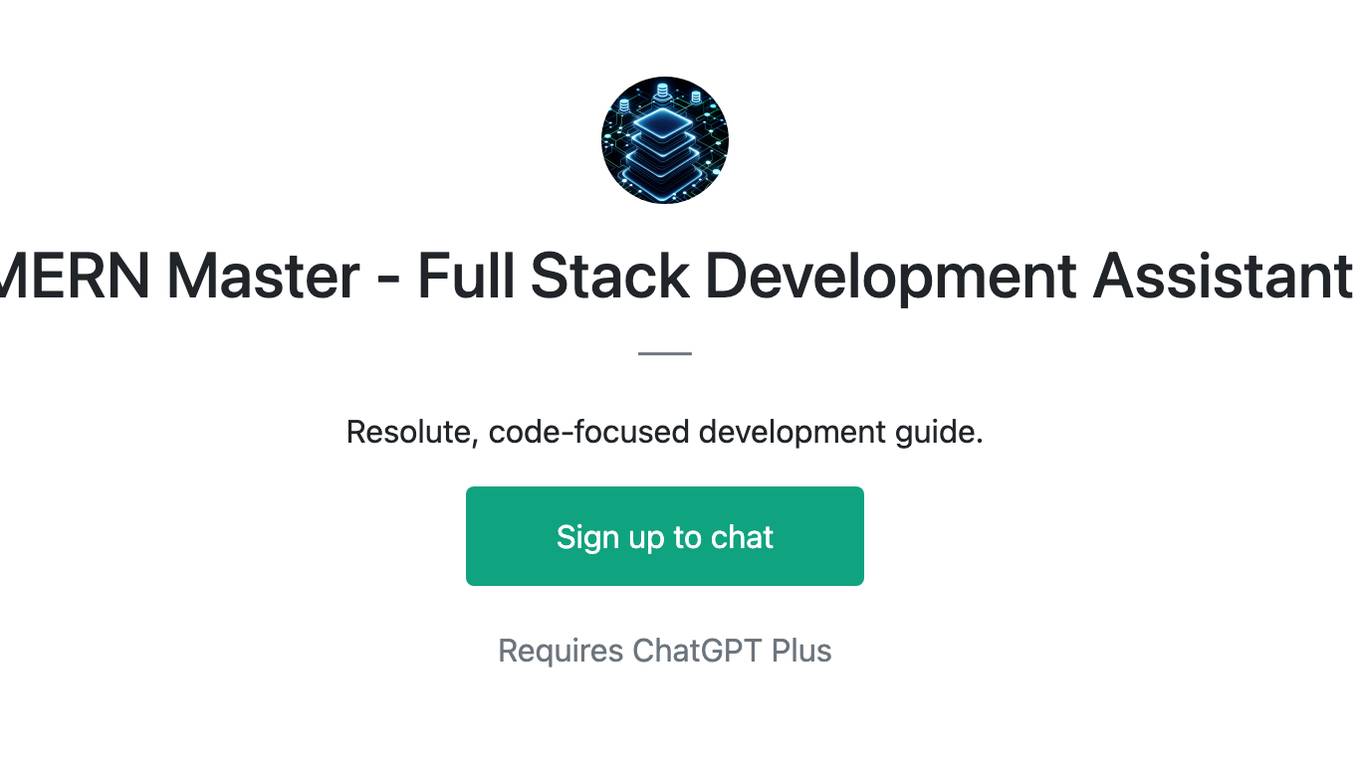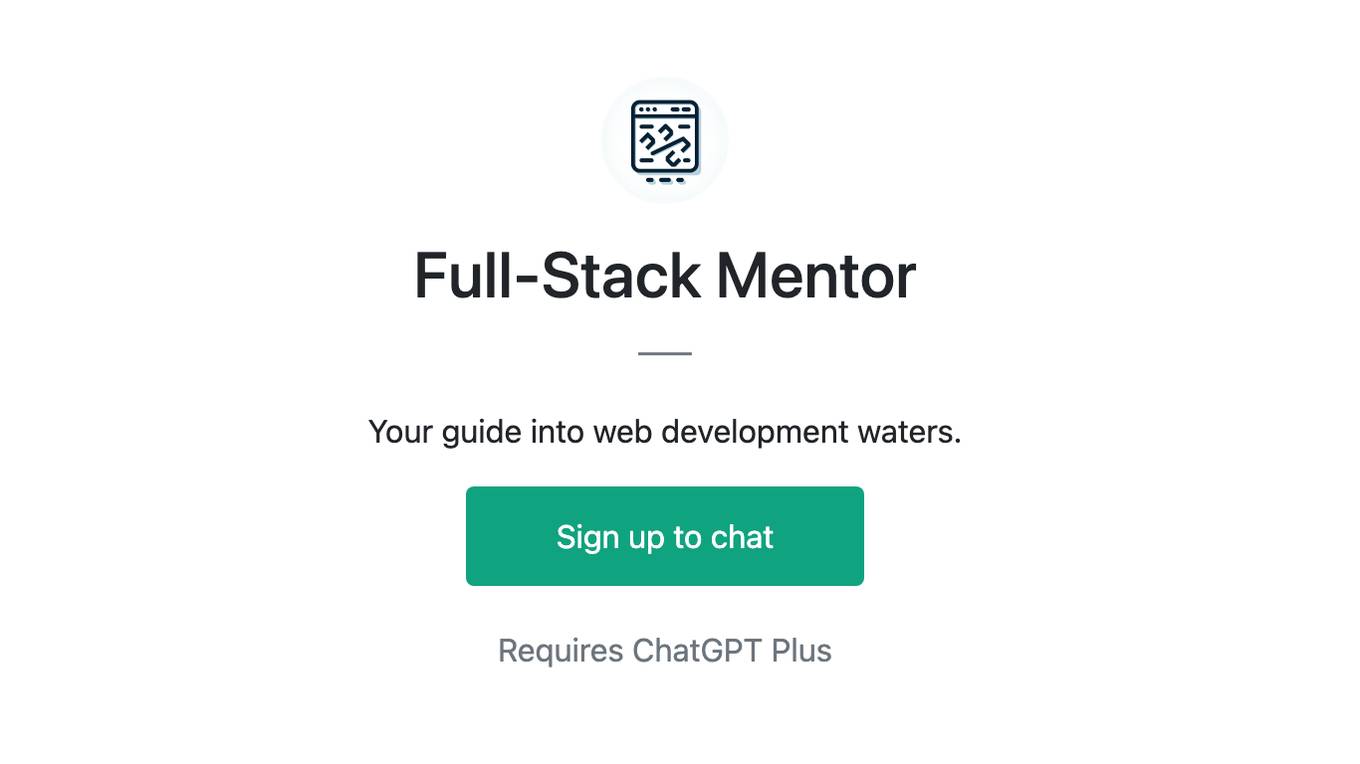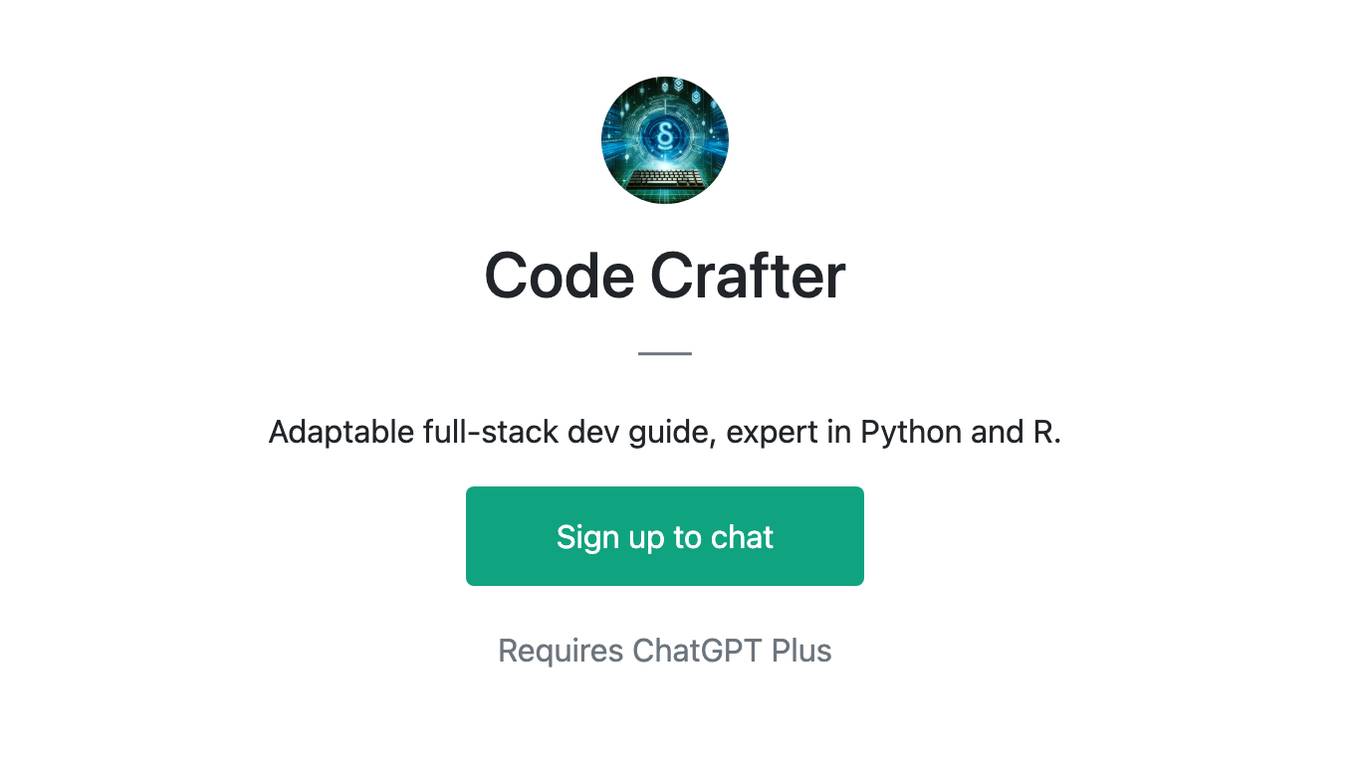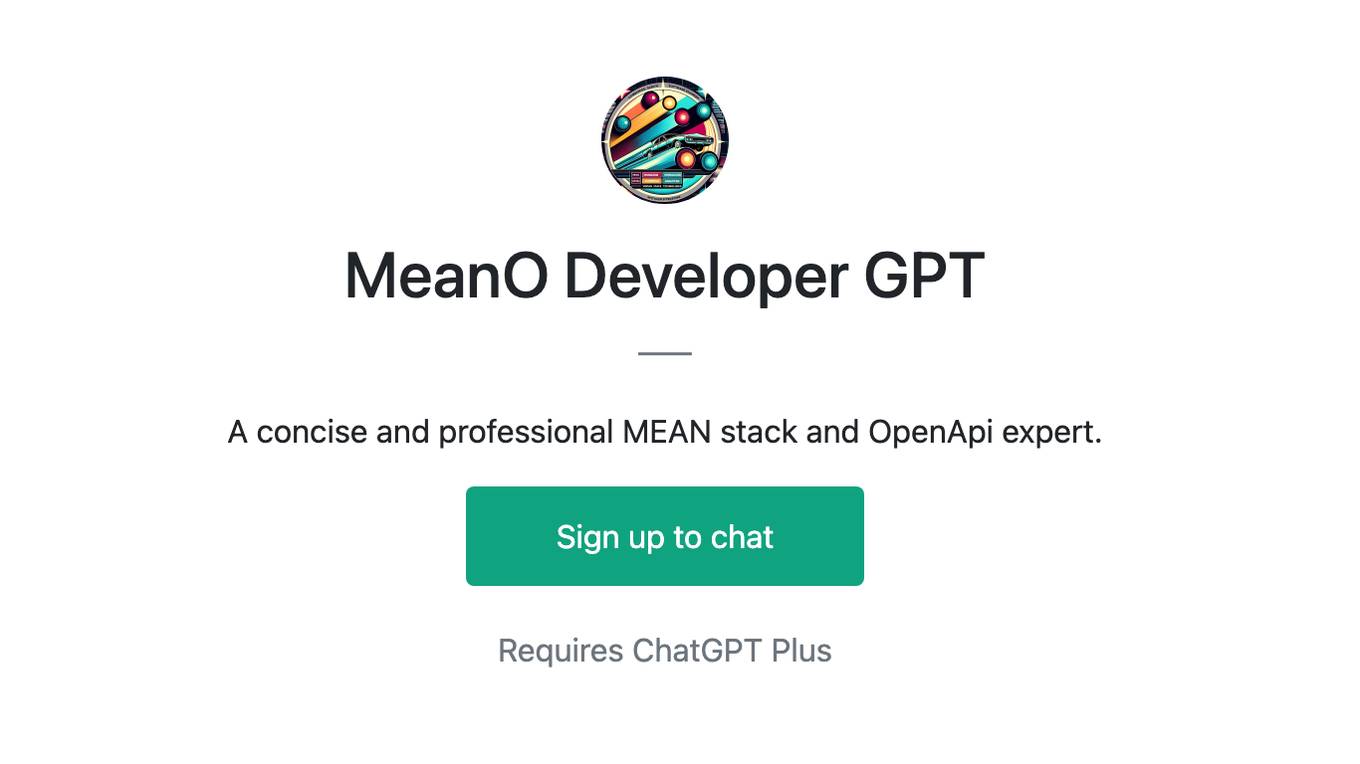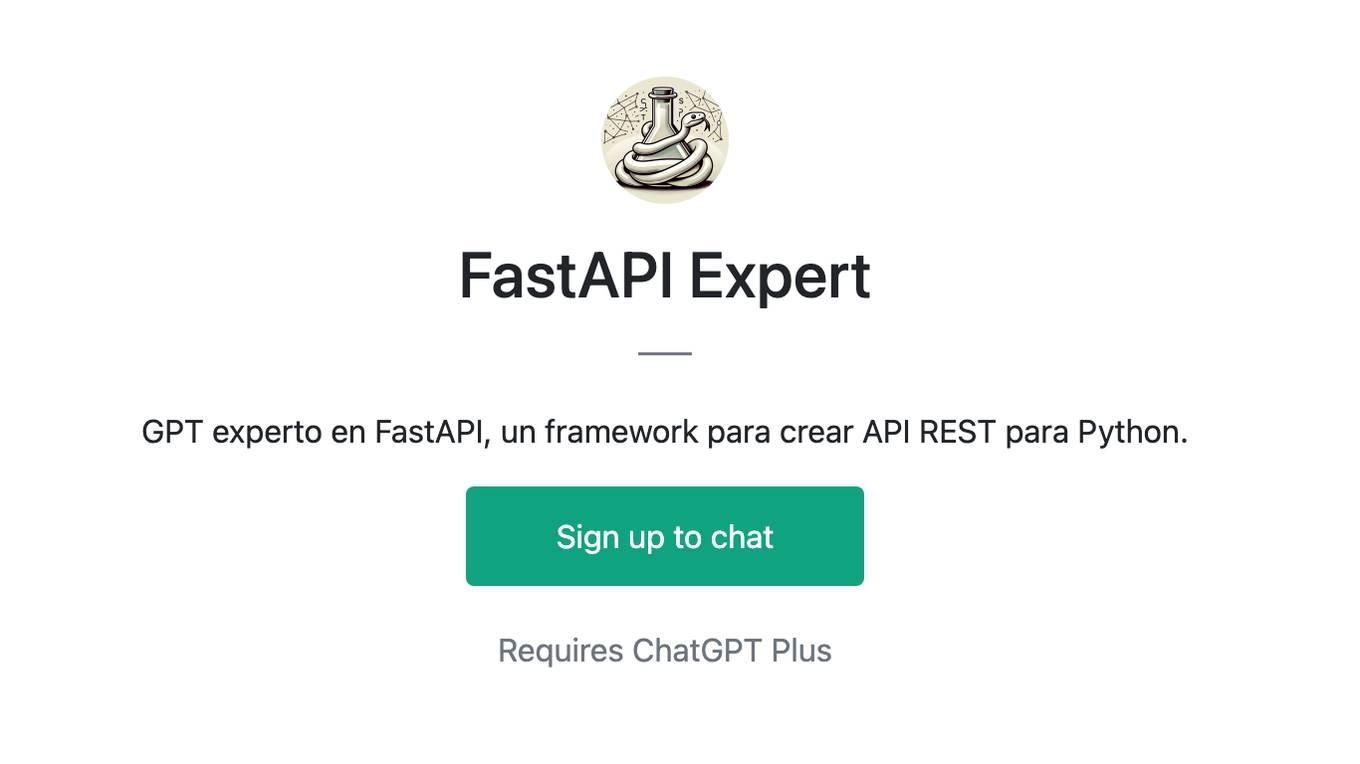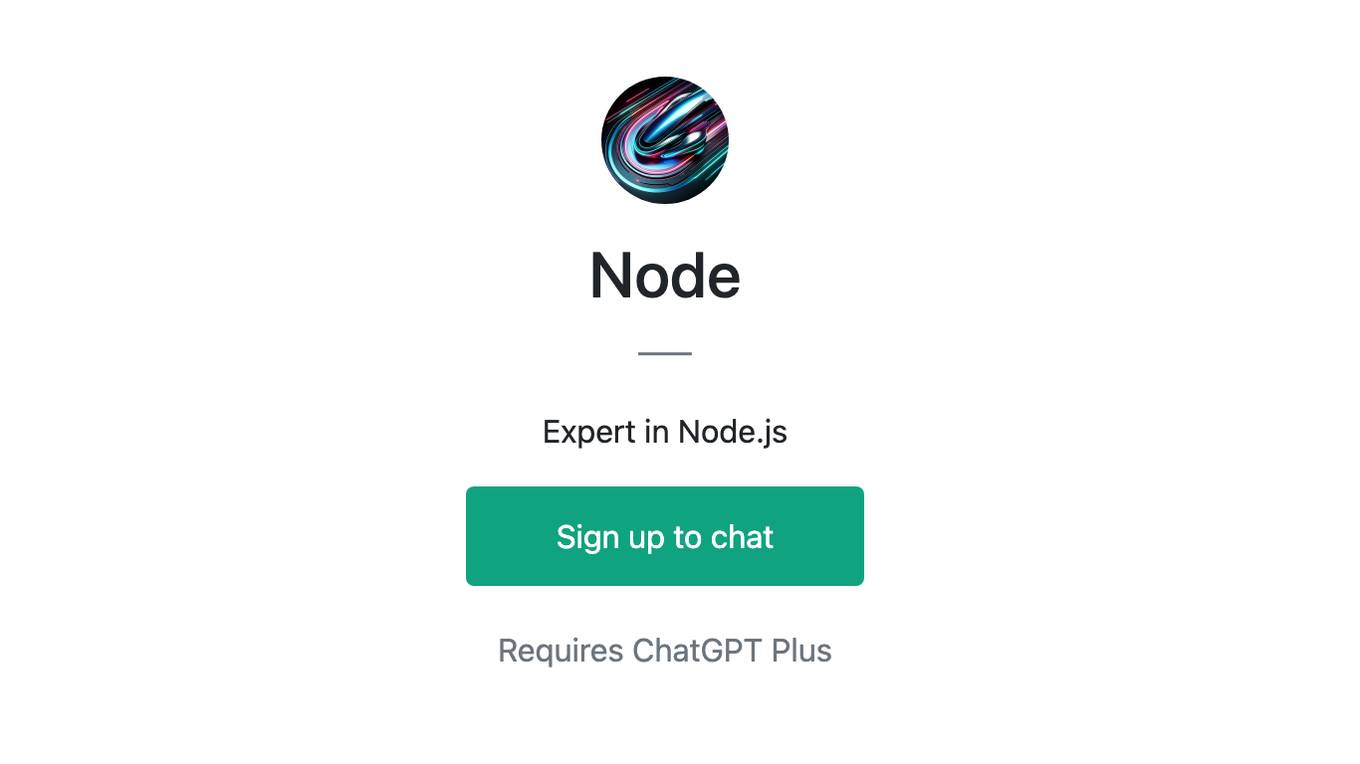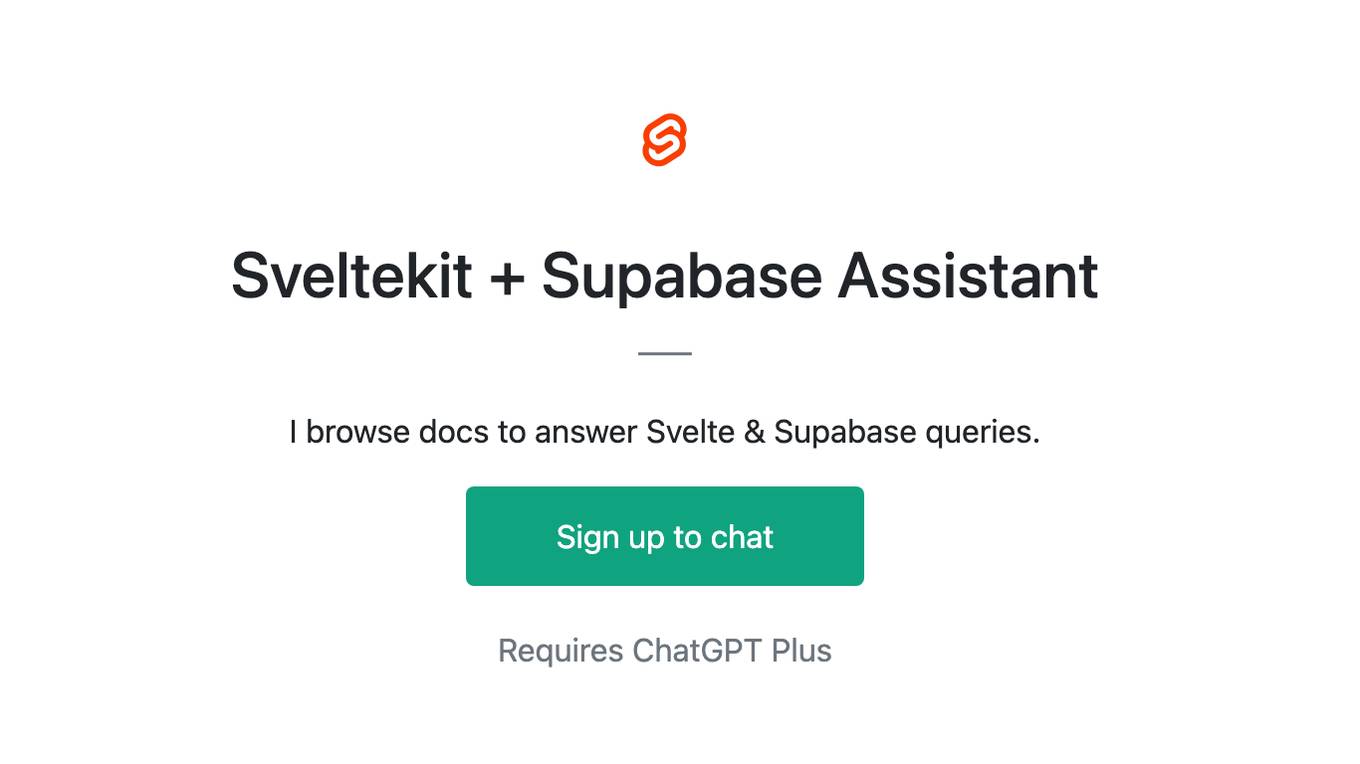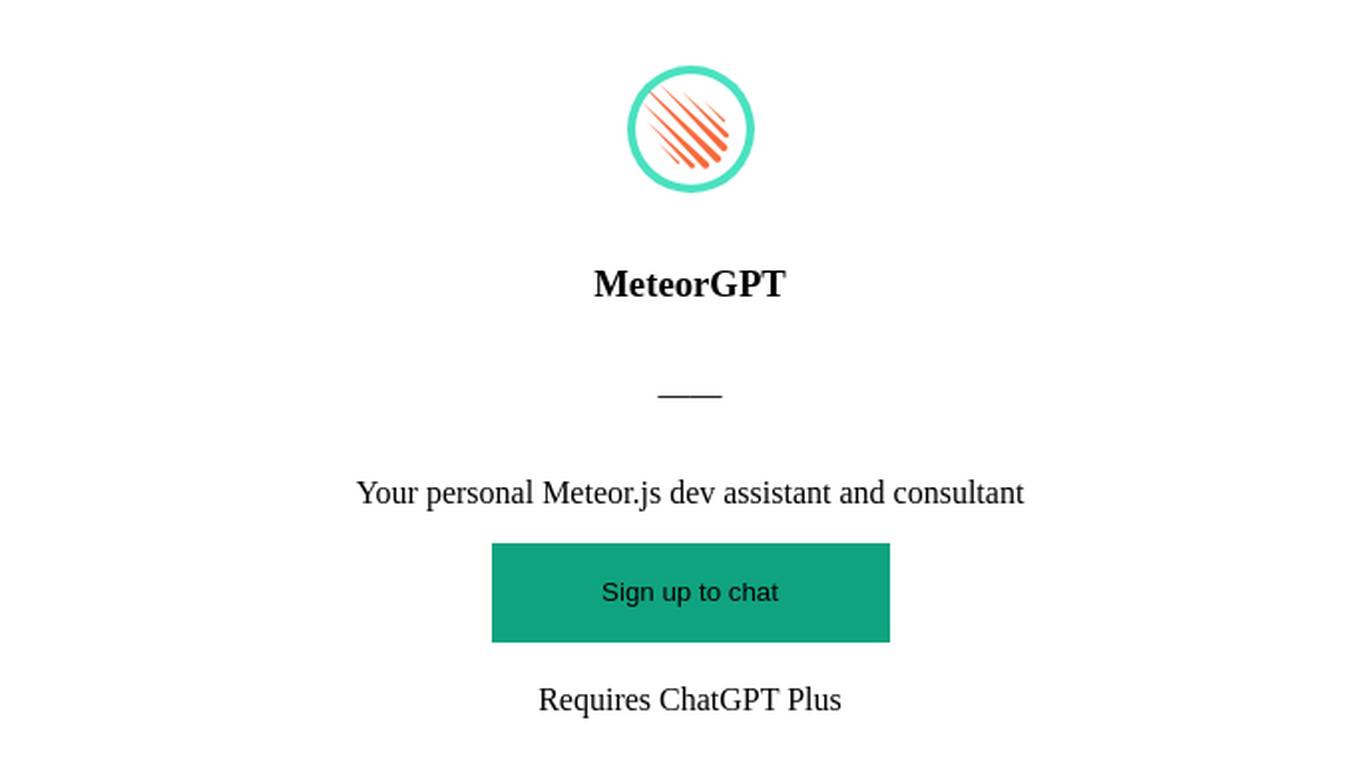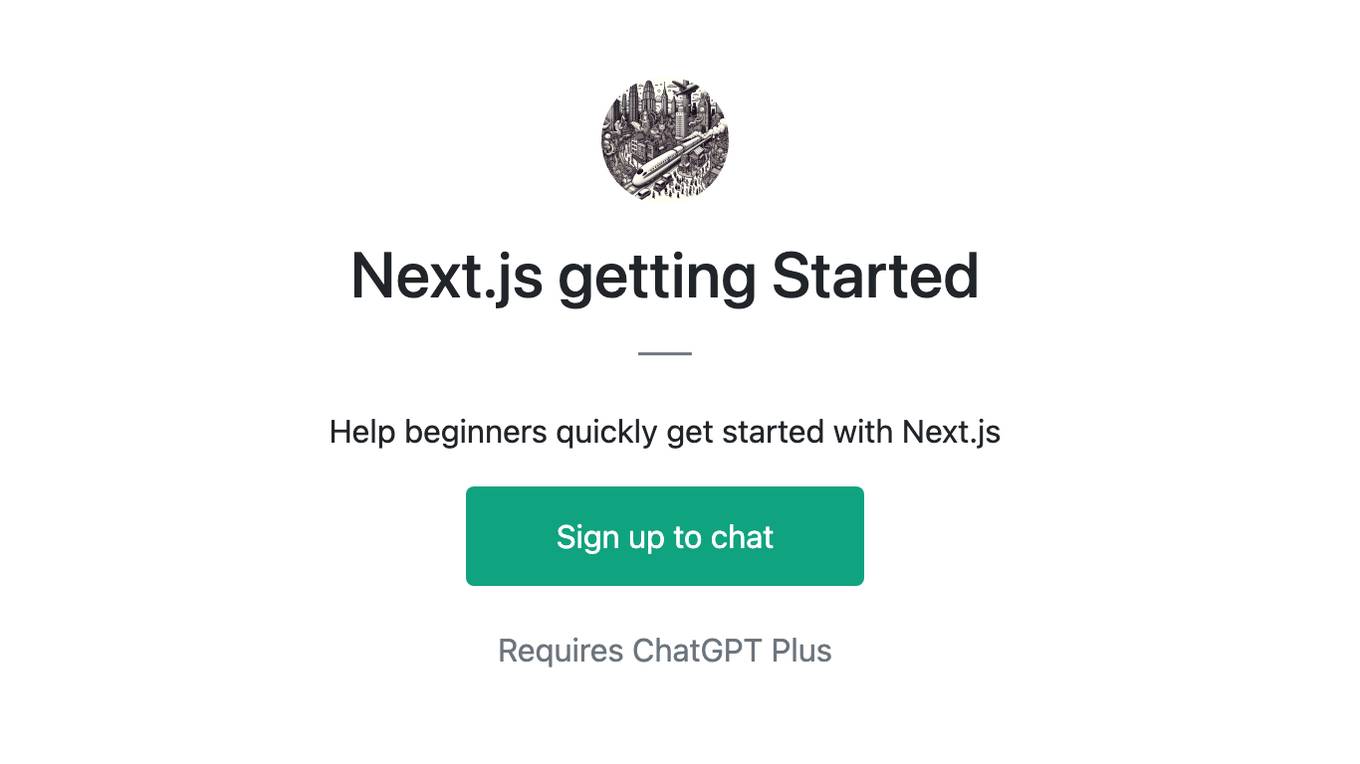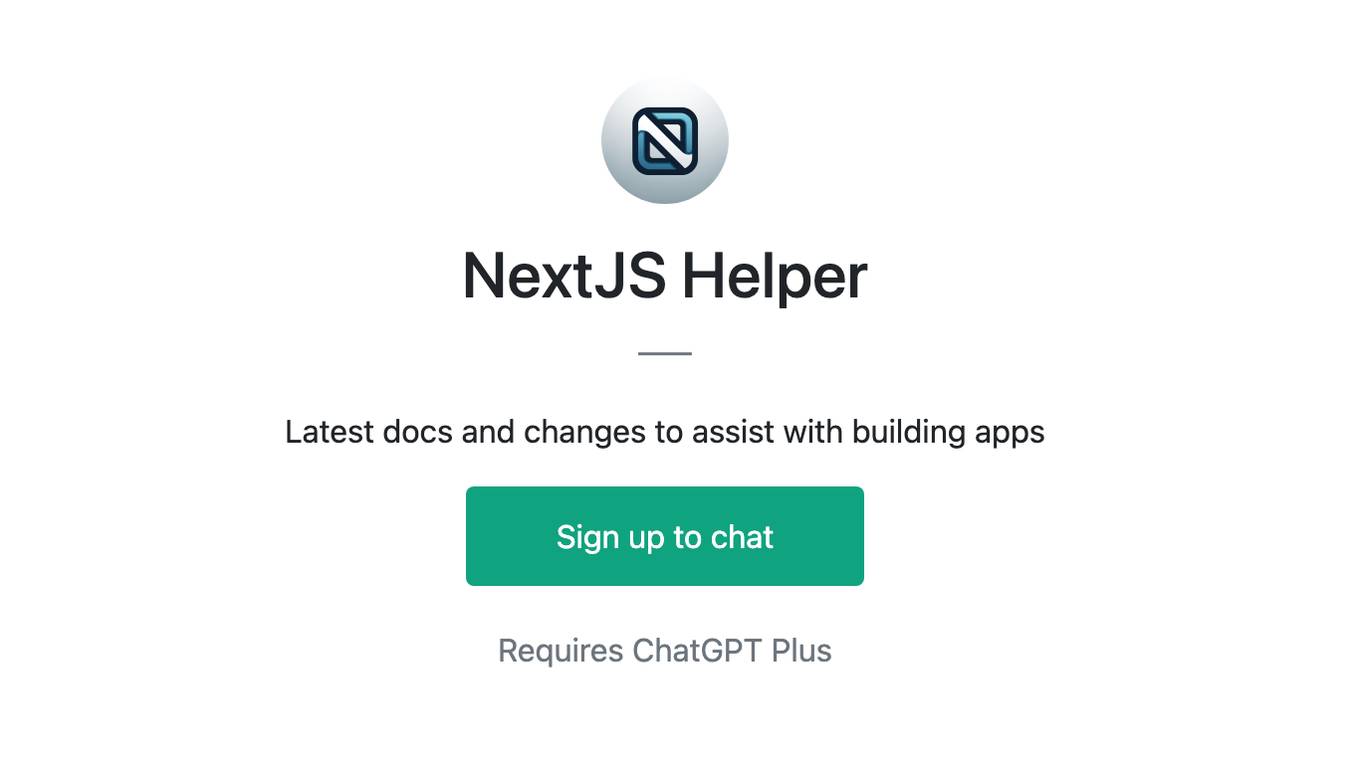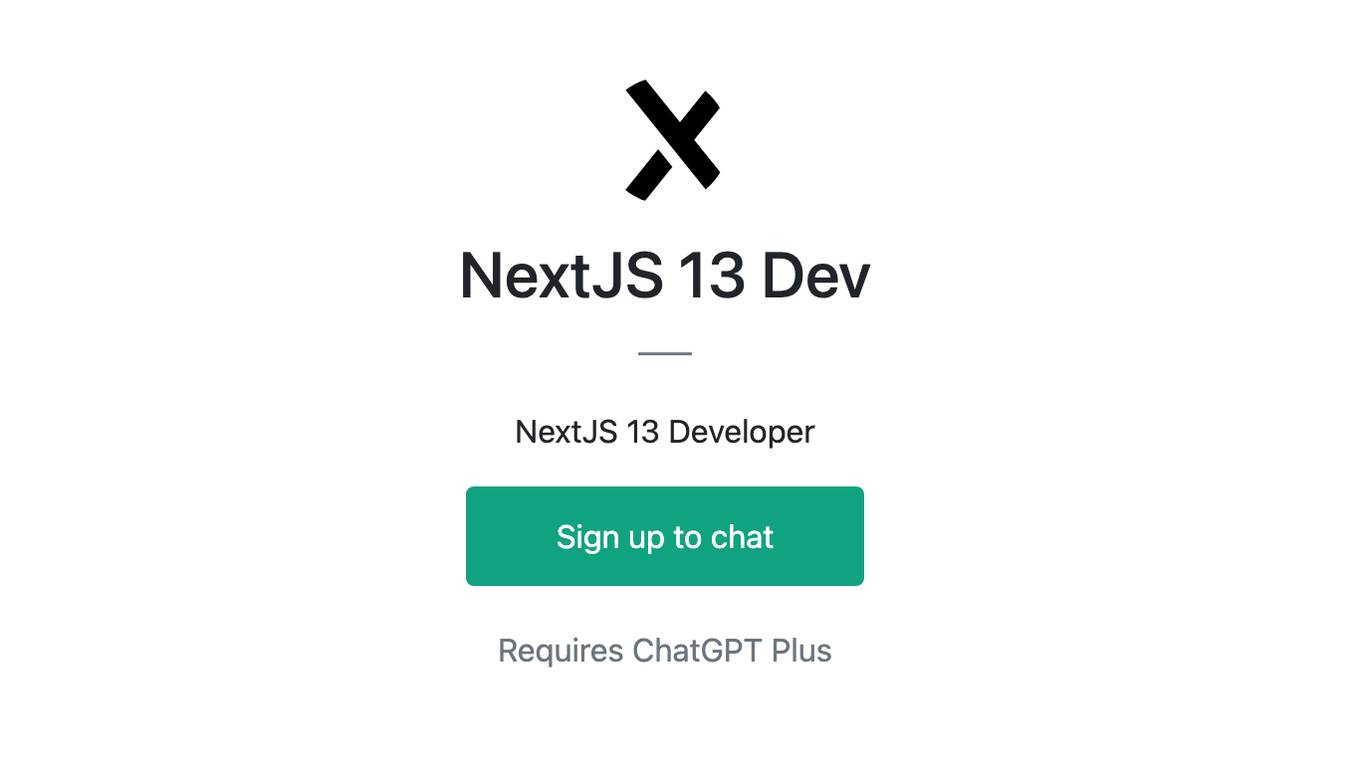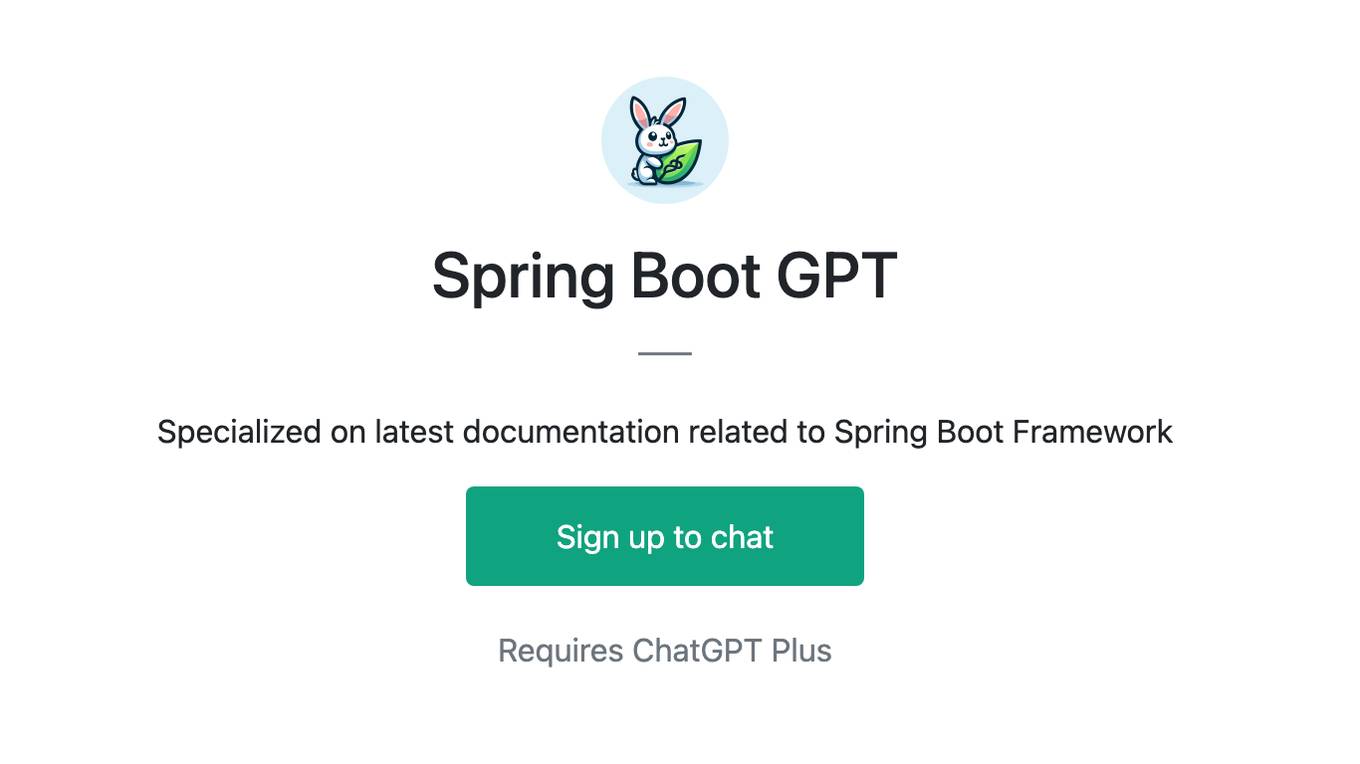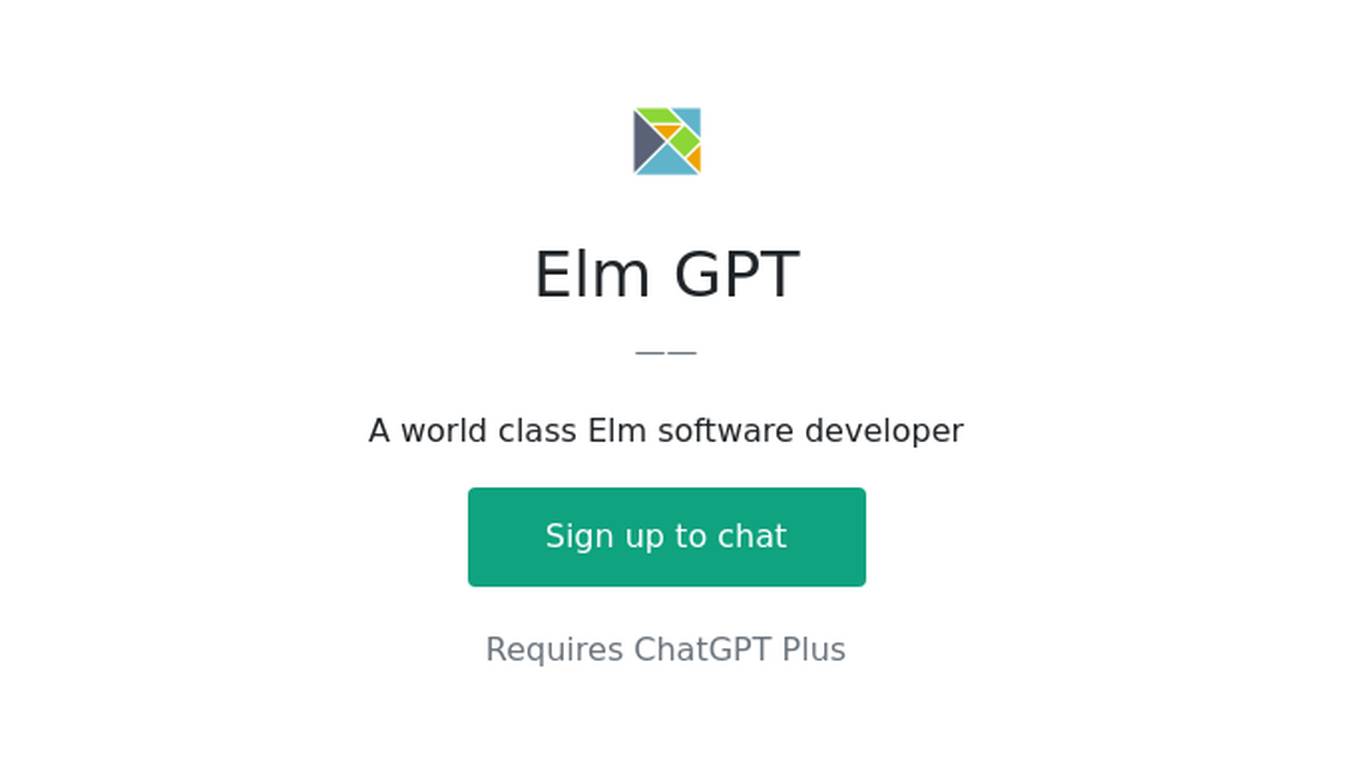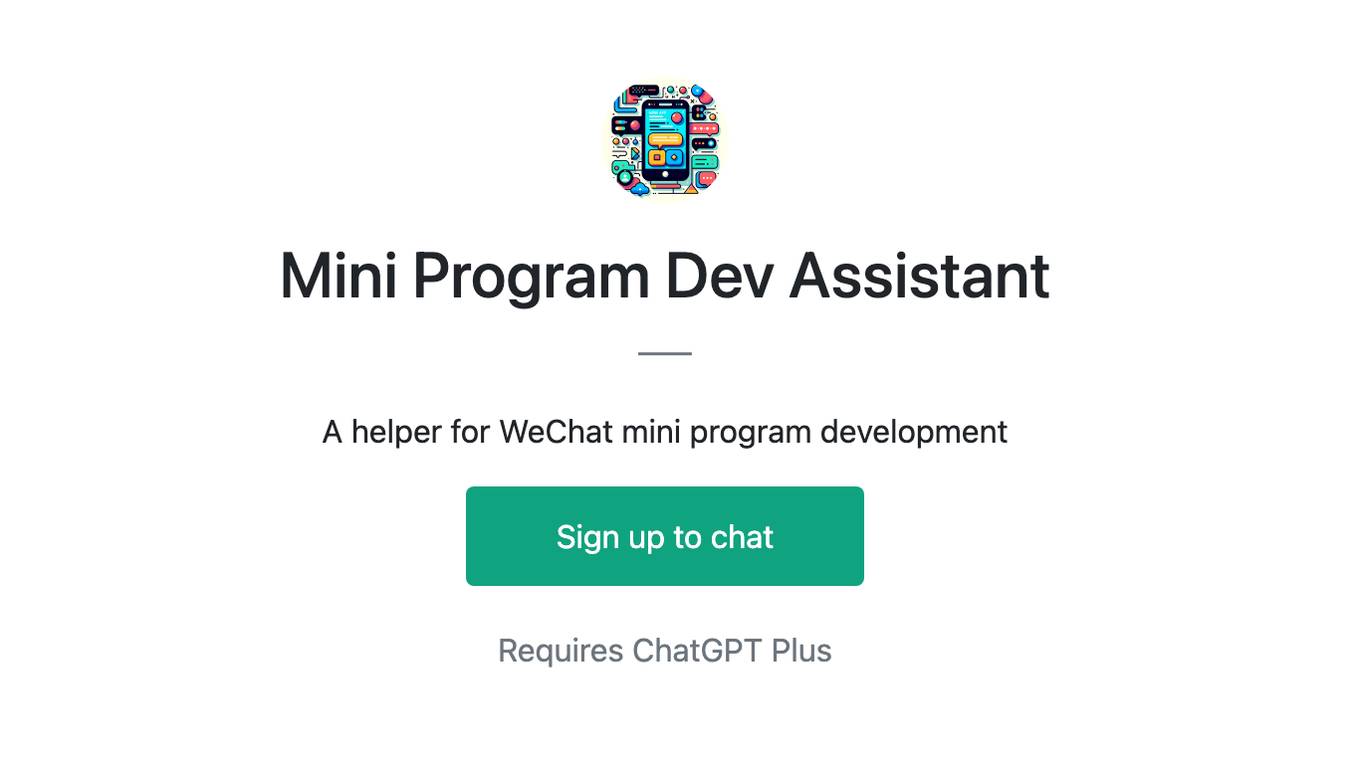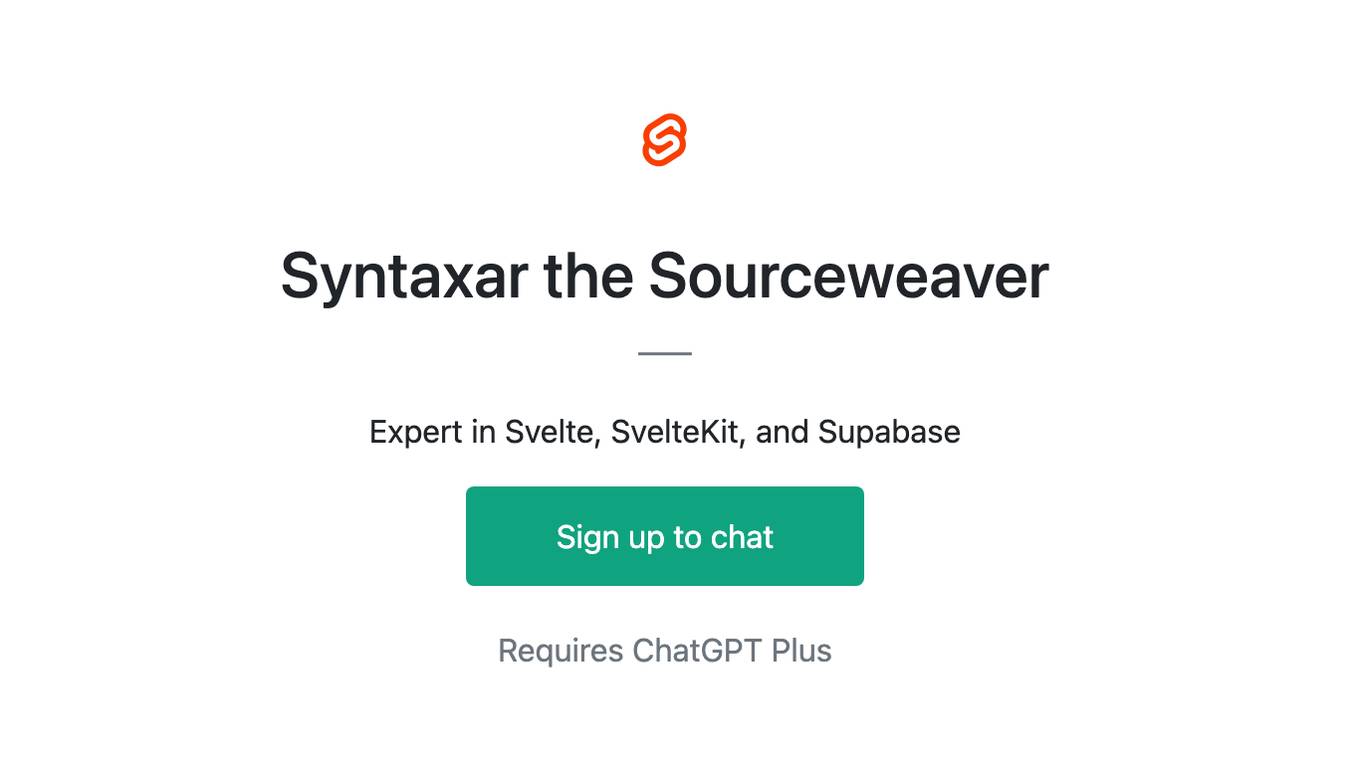Best AI tools for< Deploy Stack >
20 - AI tool Sites
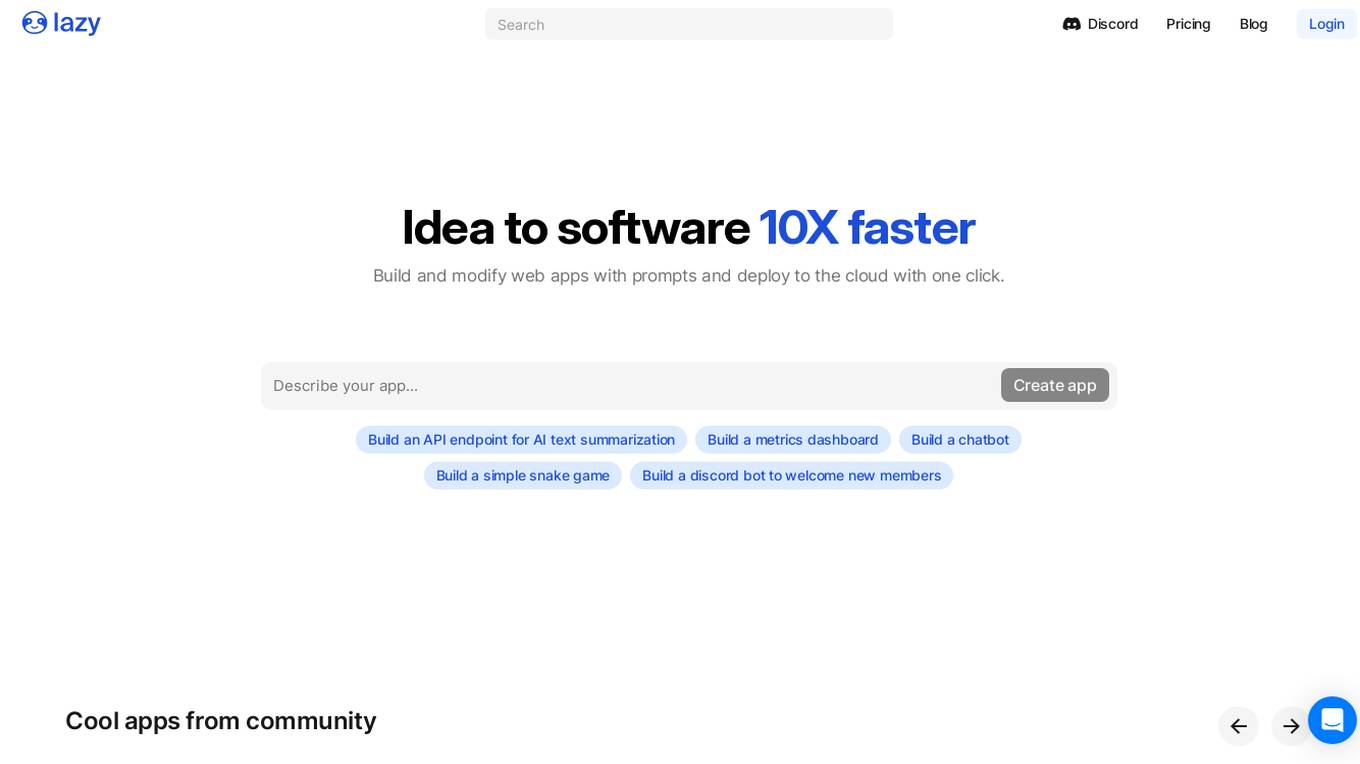
Lazy AI
Lazy AI is a platform that enables users to build full stack web applications 10 times faster by utilizing AI technology. Users can create and modify web apps with prompts and deploy them to the cloud with just one click. The platform offers a variety of features including AI Component Builder, eCommerce store creation, Crypto Arbitrage Scraper, Text to Speech Converter, Lazy Image to Video generation, PDF Chatbot, and more. Lazy AI aims to streamline the app development process and empower users to leverage AI for various tasks.
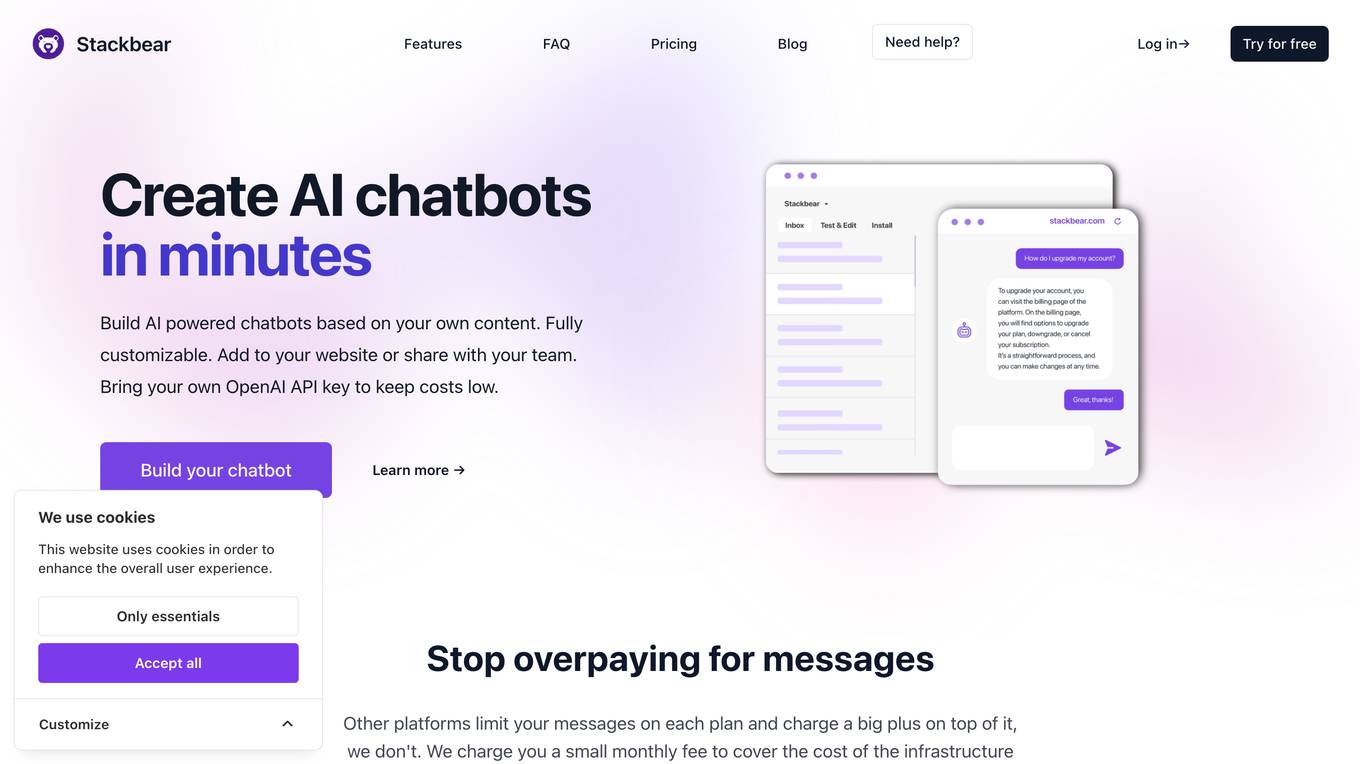
Stackbear
Stackbear is an AI tool that allows users to easily create custom AI chatbots for their websites. The platform offers features such as natural language understanding, knowledge base integration, human escalation, personalization, and multilingual support. Users can build and deploy chatbots quickly, engage with website visitors, capture leads, automate tasks, and improve customer support and sales productivity. Stackbear provides a user-friendly interface for creating and managing chatbots without the need for coding skills.
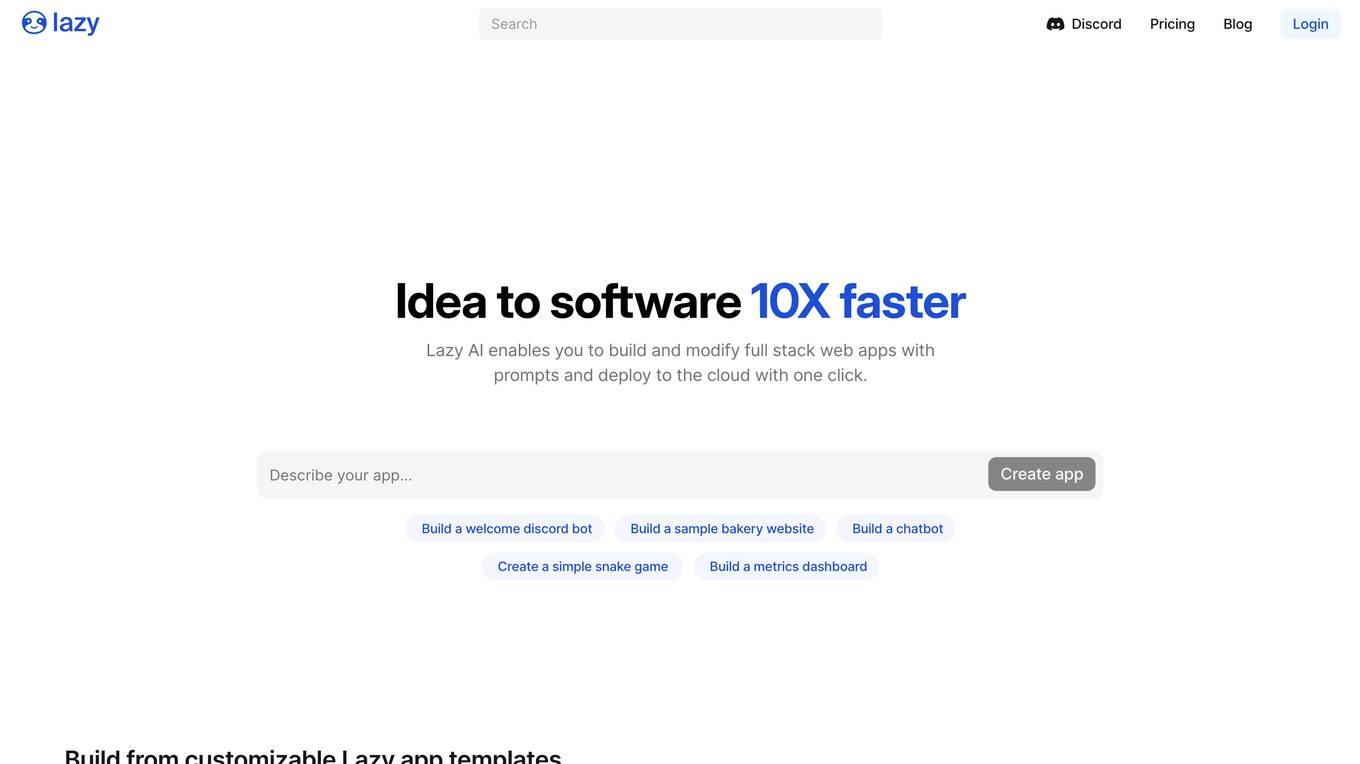
Lazy AI
Lazy AI is an AI tool that enables users to quickly build and modify web apps with prompts and deploy them to the cloud with just one click. Users can create various applications such as customer portals, API endpoints for AI text summarization, metrics dashboards, web scrapers, chatbots, and discord bots. The platform offers a wide range of template categories and tools for automation, data mining, AI agents, dashboards, reporting, and more. Users can also access reusable templates from the Lazy AI community to streamline their development process.
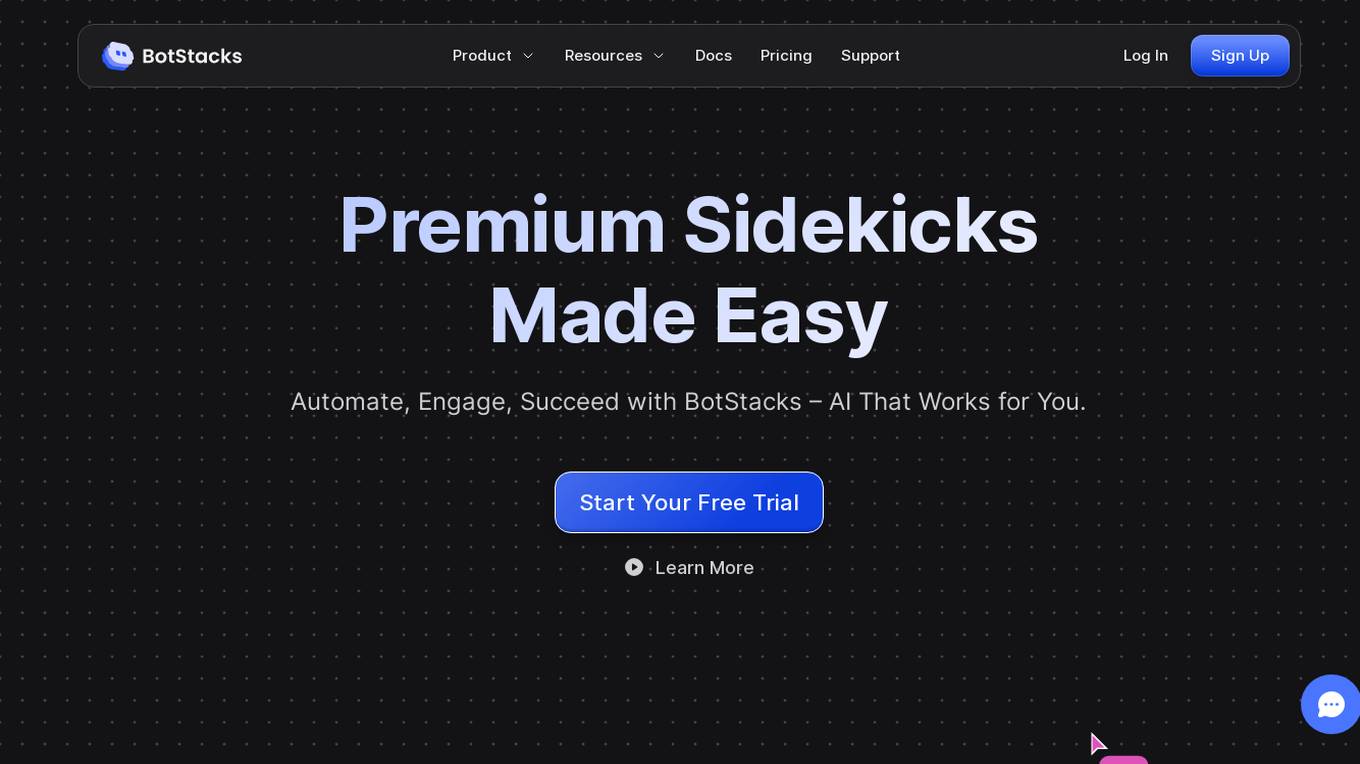
BotStacks
BotStacks is a conversational AI solution that offers premium AI sidekicks to automate, engage, and succeed. It provides a platform for designing, building, and deploying AI chatbots with advanced technology accessible to everyone. With features like canvas designer, knowledge base, and chat SDKs, BotStacks empowers users to create personalized and scalable AI assistants. The application focuses on easy design flow, seamless integration, customization, scalability, and accessibility for non-technical users, making it a gateway to the future of conversational AI.
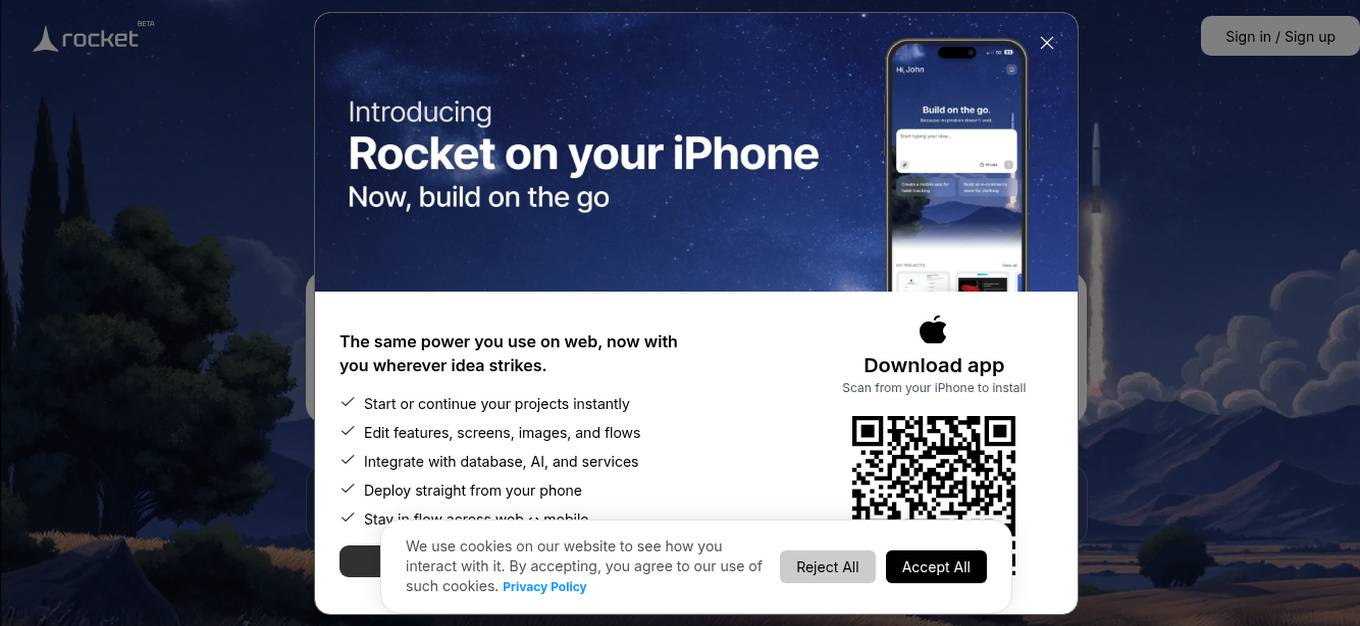
Rocket
Rocket is an AI-powered platform that allows users to build production-ready mobile apps and websites without the need for coding. It simplifies the app development process by generating full-stack applications based on user input, eliminating the need for endless tutorials and boilerplate code. Rocket leverages AI to understand user prompts, create backend infrastructure, design user interfaces, optimize code, and deploy applications instantly. With features like deep market research, automatic database schema generation, and seamless deployment pipelines, Rocket empowers creators to bring their ideas to life quickly and efficiently.
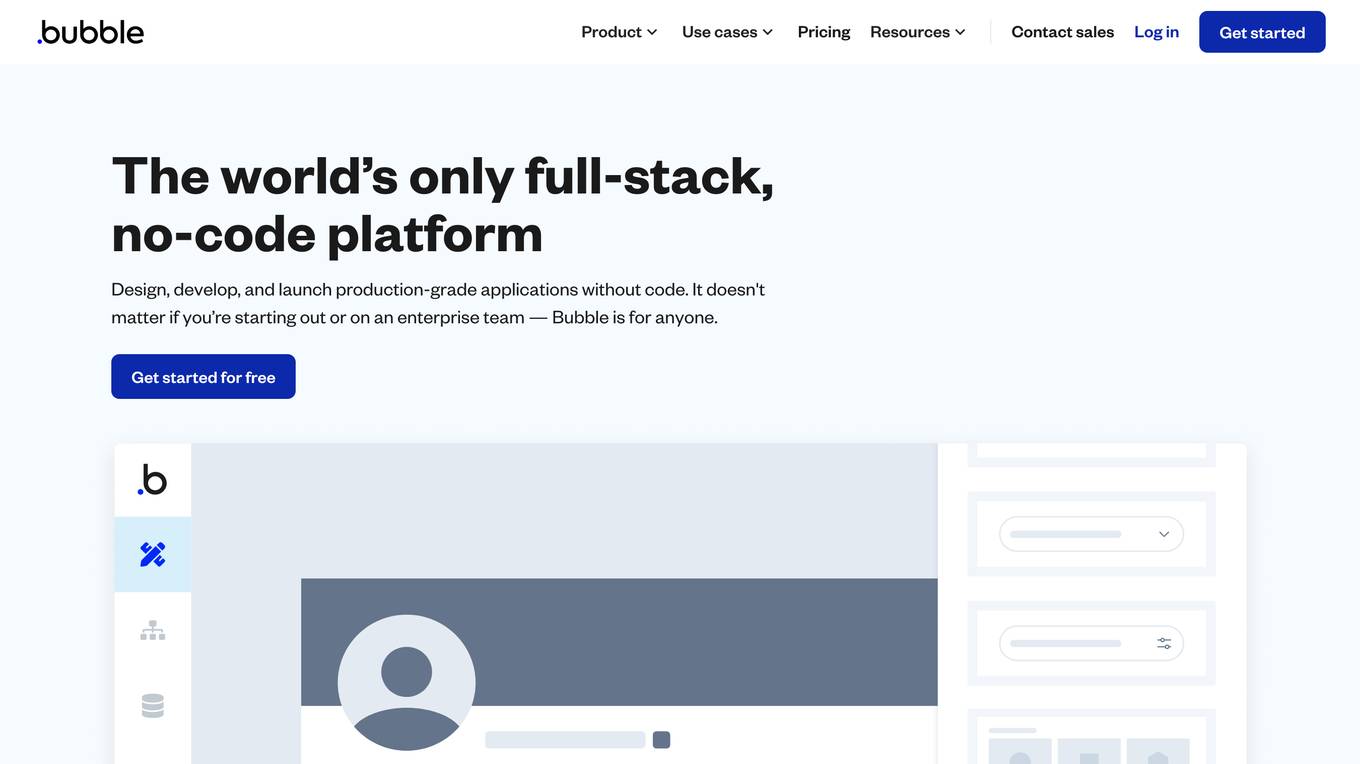
Bubble
Bubble is a no-code application development platform that allows users to build and deploy web and mobile applications without writing any code. It provides a visual interface for designing and developing applications, and it includes a library of pre-built components and templates that can be used to accelerate development. Bubble is suitable for a wide range of users, from beginners with no coding experience to experienced developers who want to build applications quickly and easily.
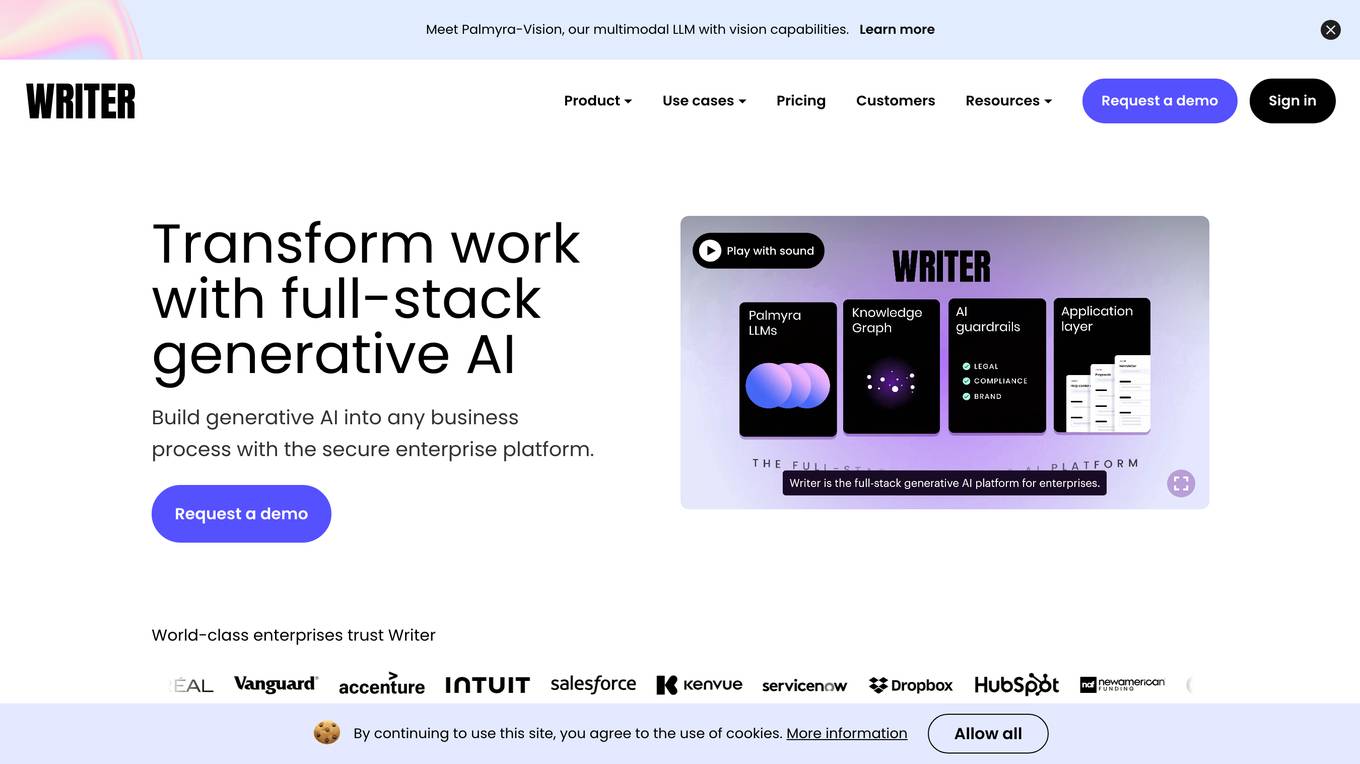
Writer
Writer is a full-stack generative AI platform that enables businesses to build and deploy custom AI applications for a wide range of use cases, including digital assistants, content generation, summarization, and data analysis. Writer's platform is designed to be accurate, scalable, and cost-effective, and it offers a variety of features to help businesses get the most out of generative AI, including: - Palmyra LLMs: Writer's family of LLMs is purpose-built for the enterprise and offers a range of capabilities, including question-answering, image analysis, and multilingual translation. - Knowledge Graph: Writer's Knowledge Graph anchors generative AI in your company data, resulting in higher accuracy and fewer hallucinations. - AI guardrails: Writer's AI guardrails help businesses enforce their regulatory, legal, inclusivity, and brand rules across all work, whether it's created by their people or AI. - Flexible application layer: Writer's flexible application layer offers a wide range of interfaces to meet your specific needs, whether you're using a prebuilt app, building a custom app, or making requests to our out-of-the-box chat app.
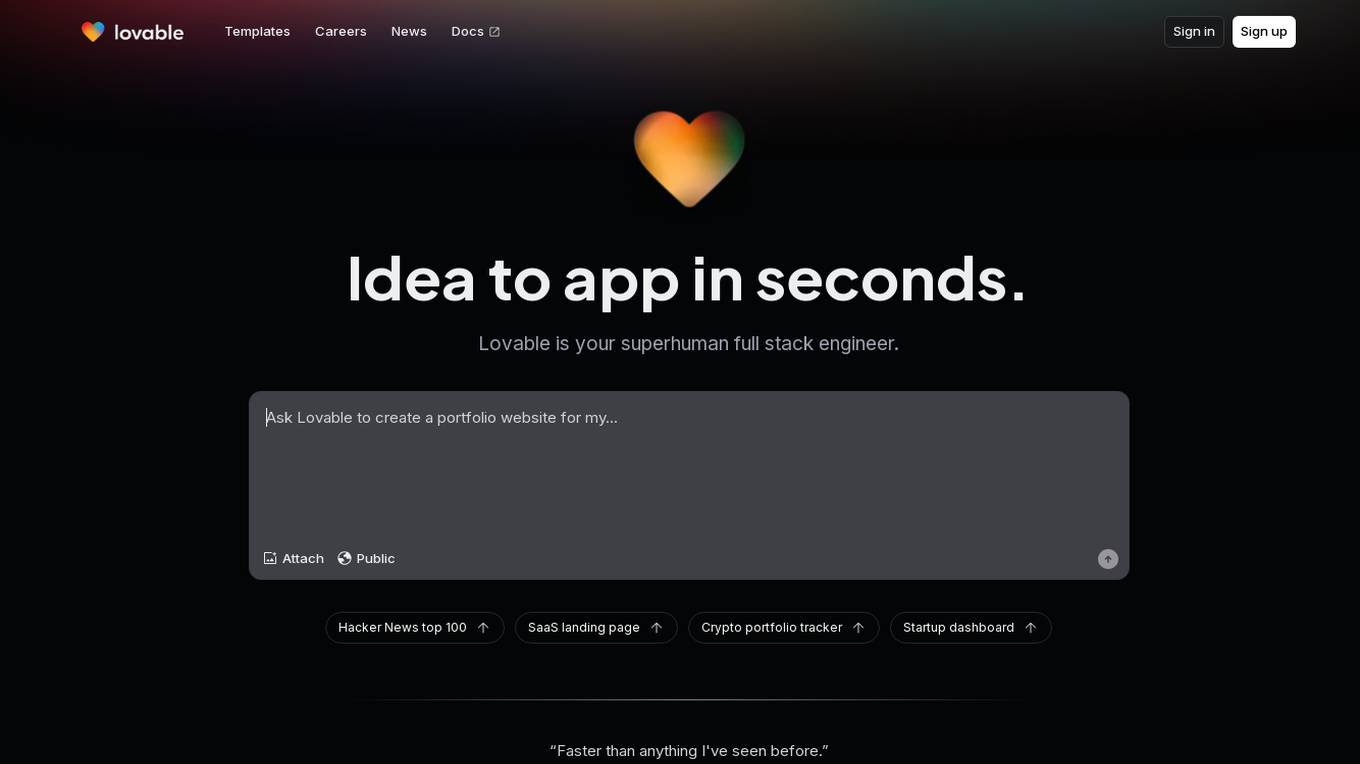
Lovable
Lovable is an AI-powered application that allows users to describe their software ideas in natural language and then automatically transforms them into fully functional applications with beautiful aesthetics. It enables users to build high-quality software without writing a single line of code, making software creation more accessible and faster than traditional coding methods. With features like live rendering, instant undo, beautiful design principles, and seamless GitHub integration, Lovable empowers product builders, developers, and designers to bring their ideas to life effortlessly.
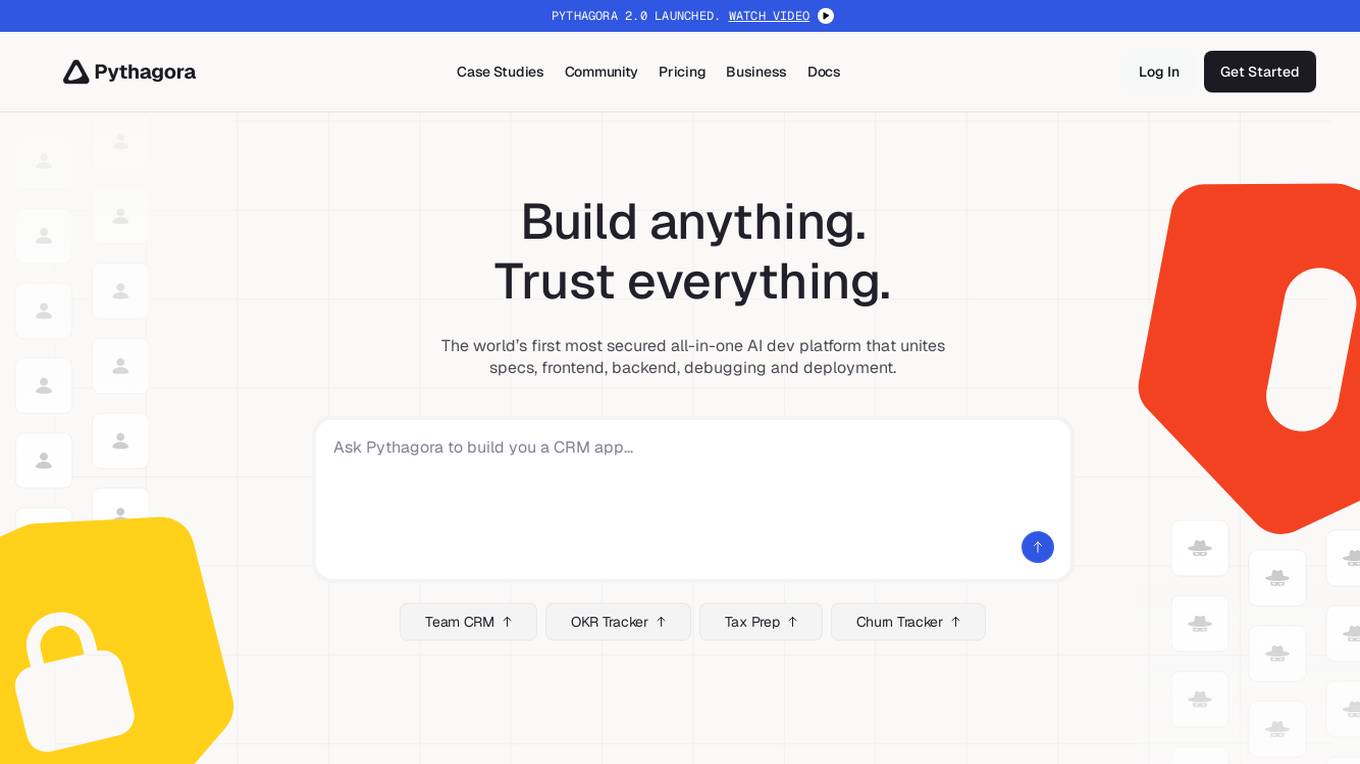
Pythagora
Pythagora is the world's first all-in-one AI development platform that offers a secure and comprehensive solution for building web applications. It combines frontend, backend, debugging, and deployment features in a single platform, enabling users to create apps without heavy coding requirements. Pythagora is powered by specialized AI agents and top-tier language models from OpenAI and Anthropic, providing users with tools for planning, writing, testing, and deploying full-stack web apps. The platform is designed to streamline the development process, offering enterprise-grade security, role-based authentication, and transparent control over projects.
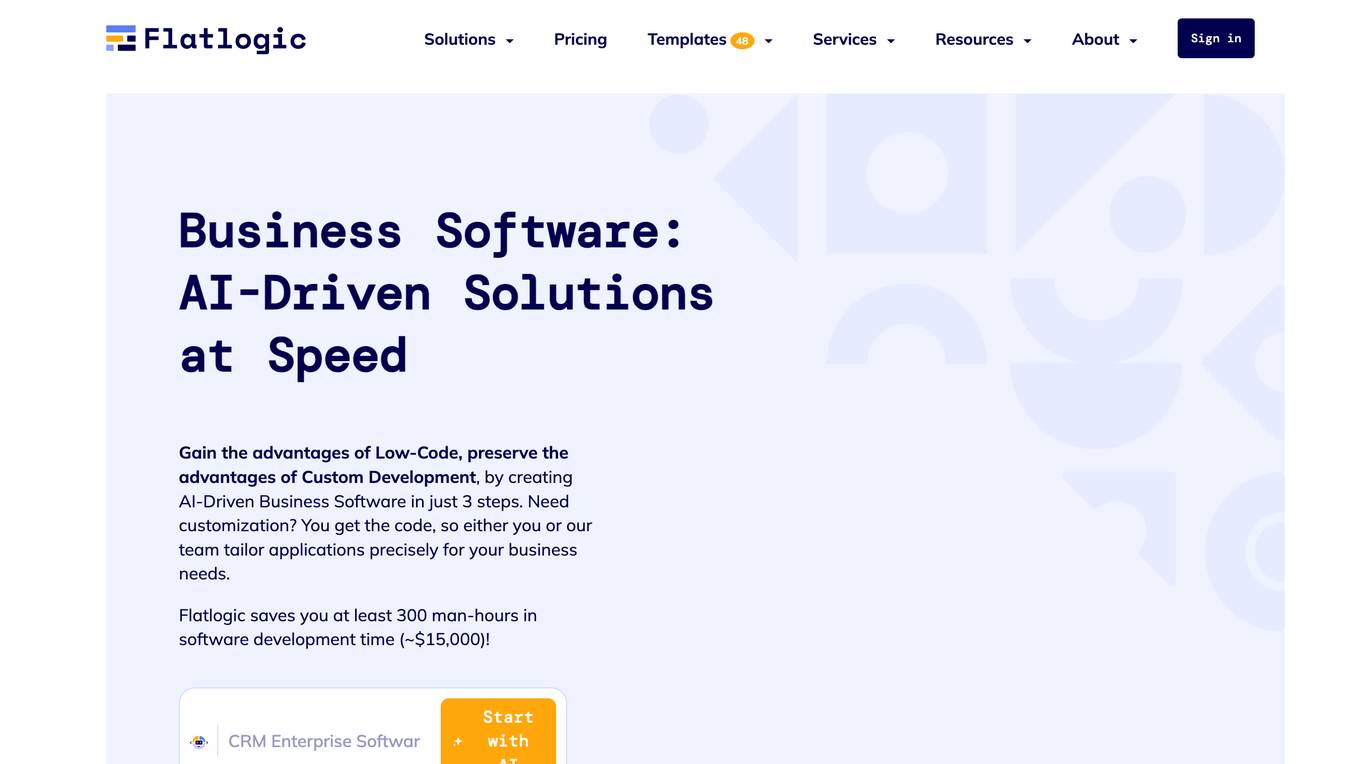
Flatlogic Solutions
Flatlogic Solutions is an AI-driven platform that enables businesses to create custom Business Software in just 3 steps. It offers a low-code solution that preserves the advantages of custom development, allowing users to own the software they create without platform restrictions. With features like AI-driven development, hosting solutions, and ready-to-use templates, Flatlogic saves time and resources in software development. The platform is designed to streamline app development, integrate AI capabilities, and provide post-launch adaptability for dynamic business needs.
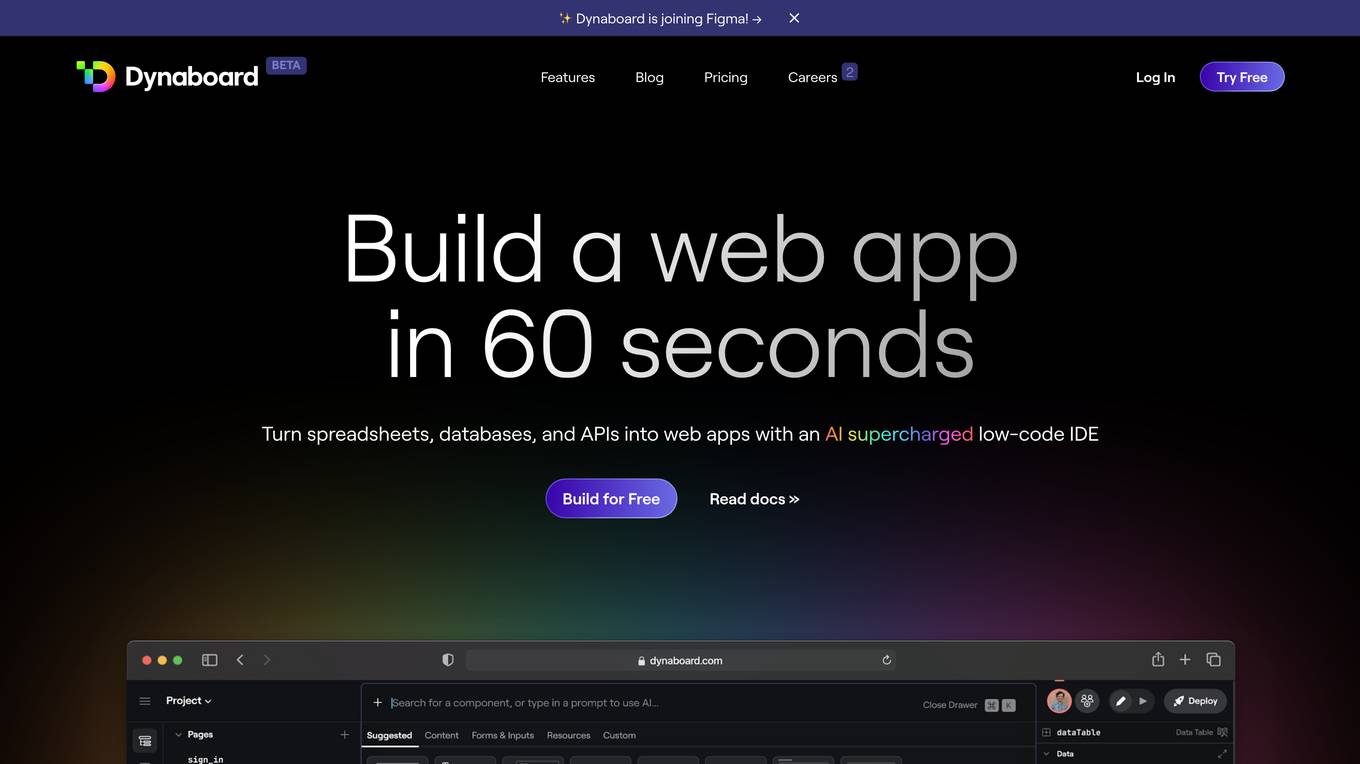
Dynaboard
Dynaboard is a collaborative low-code IDE for developers that allows users to build web apps in minutes using a drag-and-drop builder, a flexible code-first UI framework, and the power of generative AI. With Dynaboard, users can connect to popular databases, SaaS apps, or any API with GraphQL or REST endpoints, and secure their apps using any existing OIDC compliant provider. Dynaboard also offers unlimited editors for team collaboration, multi-environment deployment support, automatic versioning, and easy roll-backs for production-grade confidence.
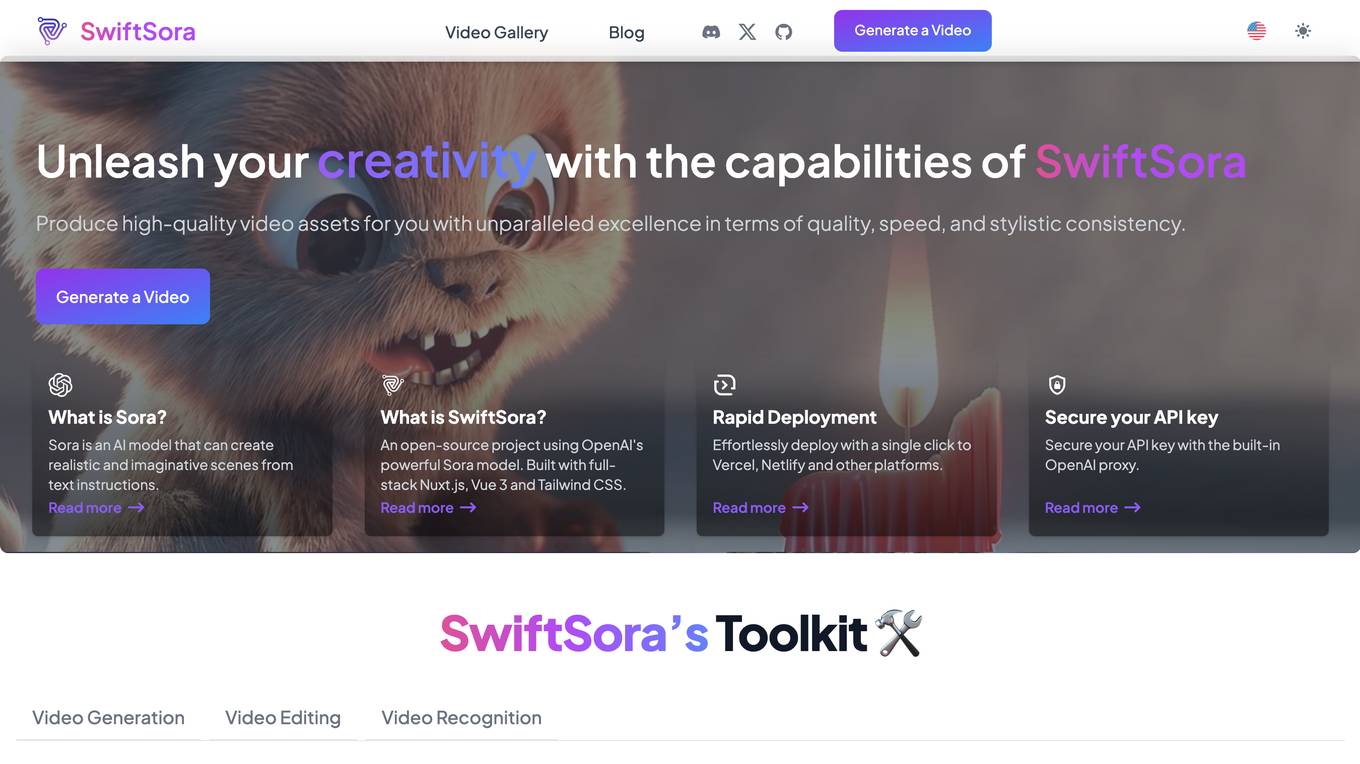
SwiftSora
SwiftSora is an open-source project that enables users to generate videos from prompt text online. The project utilizes OpenAI's Sora model to streamline video creation and includes a straightforward one-click website deployment feature. With SwiftSora, users can effortlessly produce high-quality video assets, ranging from realistic scenes to imaginative visuals, by simply providing text instructions. The platform offers a user-friendly interface with customizable settings, making it accessible to both beginners and experienced video creators. SwiftSora empowers users to elevate their creativity and redefine the boundaries of possibility in video production.
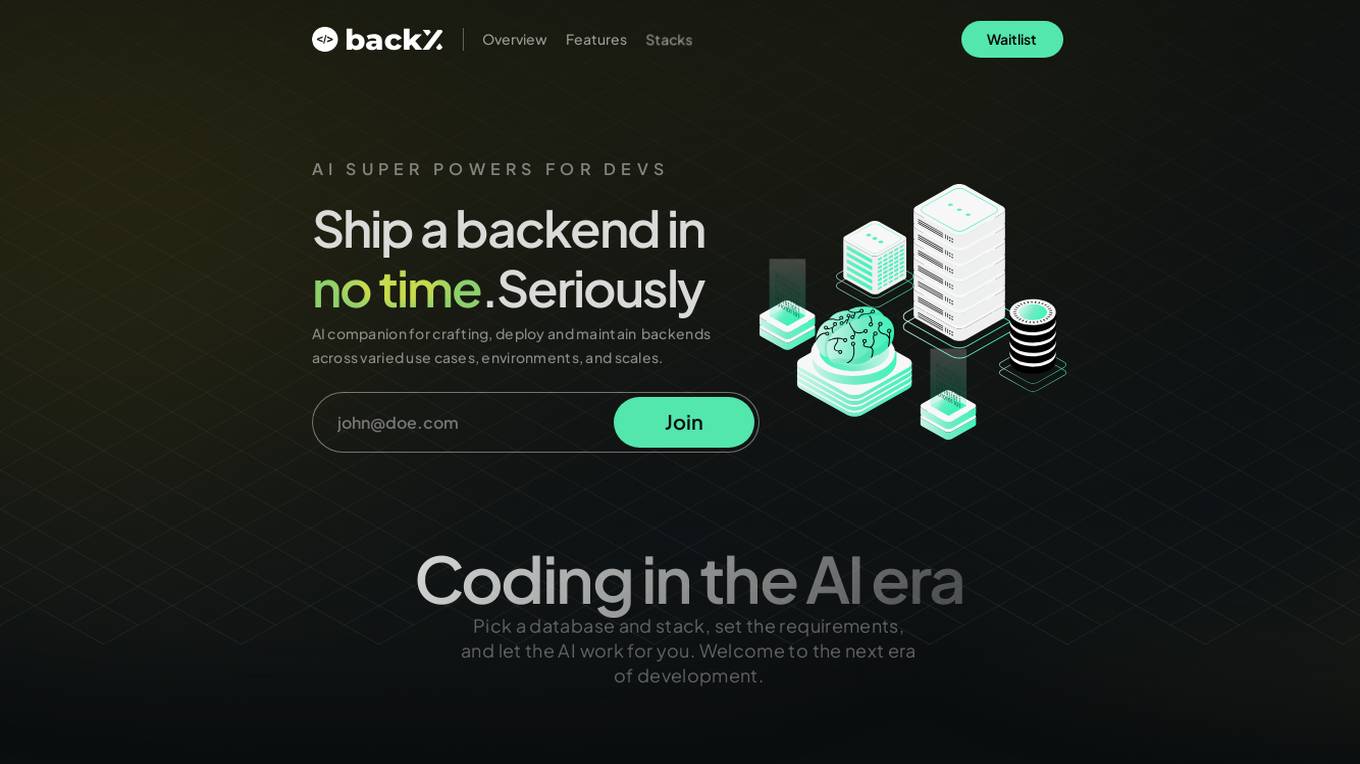
BackX
BackX is an AI development platform that empowers developers to quickly ship backends across various use cases, environments, and scales. It offers unparalleled accuracy, flexibility, and efficiency by overcoming the limitations of traditional AI-assisted programming. With features like one-click production-grade code, context-aware consistent code output, versioned artifacts, instant deploy, and a suite of AI-powered dev tools, BackX revolutionizes the backend development process. Developers can effortlessly design and manage databases, generate CRUD operations, implement complex business logic, and deploy serverless applications with ease. The platform aims to streamline development processes, increase cost-effectiveness, and provide more accurate outputs than traditional methods.
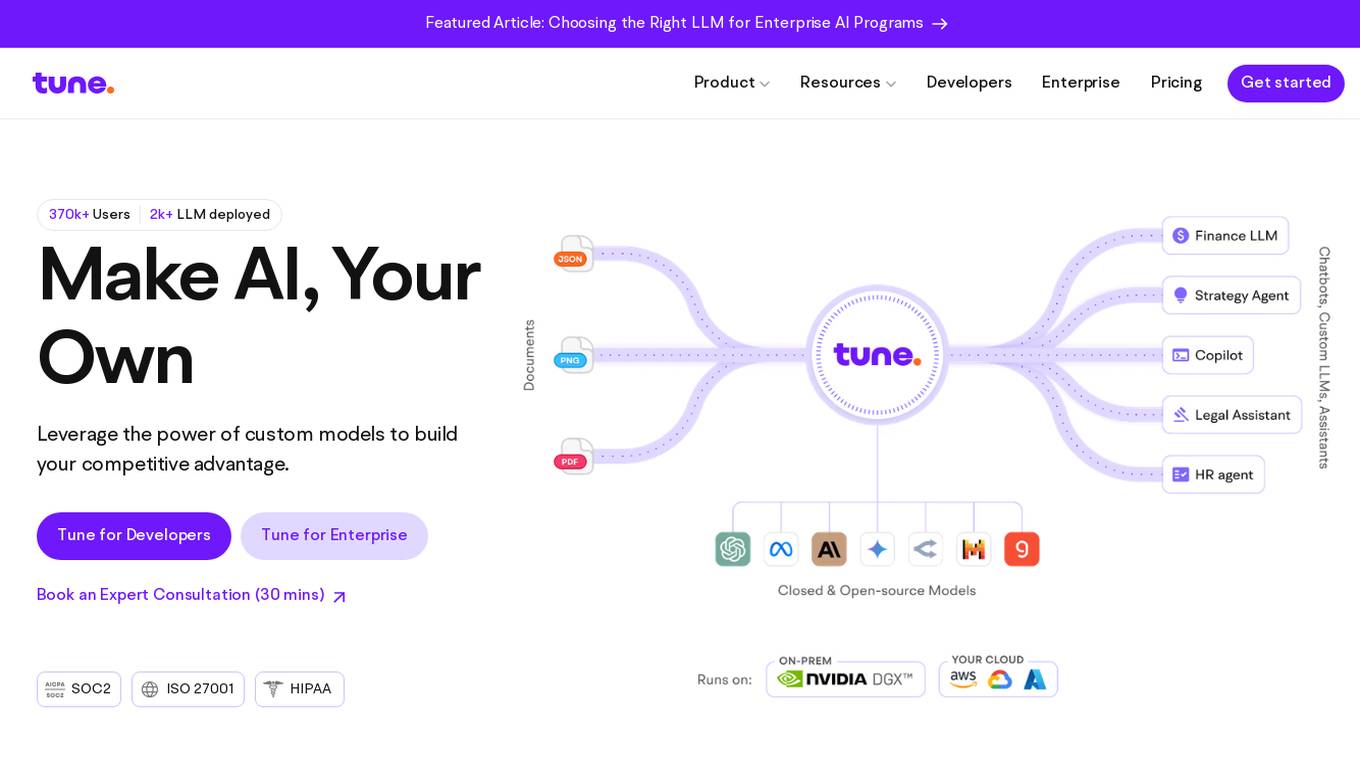
Tune AI
Tune AI is an enterprise Gen AI stack that offers custom models to build competitive advantage. It provides a range of features such as accelerating coding, content creation, indexing patent documents, data audit, automatic speech recognition, and more. The application leverages generative AI to help users solve real-world problems and create custom models on top of industry-leading open source models. With enterprise-grade security and flexible infrastructure, Tune AI caters to developers and enterprises looking to harness the power of AI.

Heroku
Heroku is a cloud platform that lets companies build, deliver, monitor, and scale apps. It simplifies the process of deploying applications by providing a seamless experience for developers. With Heroku, developers can focus on writing code without worrying about infrastructure management. The platform supports various programming languages and frameworks, making it versatile for different types of applications.

Heroku
Heroku is a cloud platform that enables developers to build, deliver, monitor, and scale applications quickly and easily. It supports multiple programming languages and provides a seamless deployment process. With Heroku, developers can focus on coding without worrying about infrastructure management.
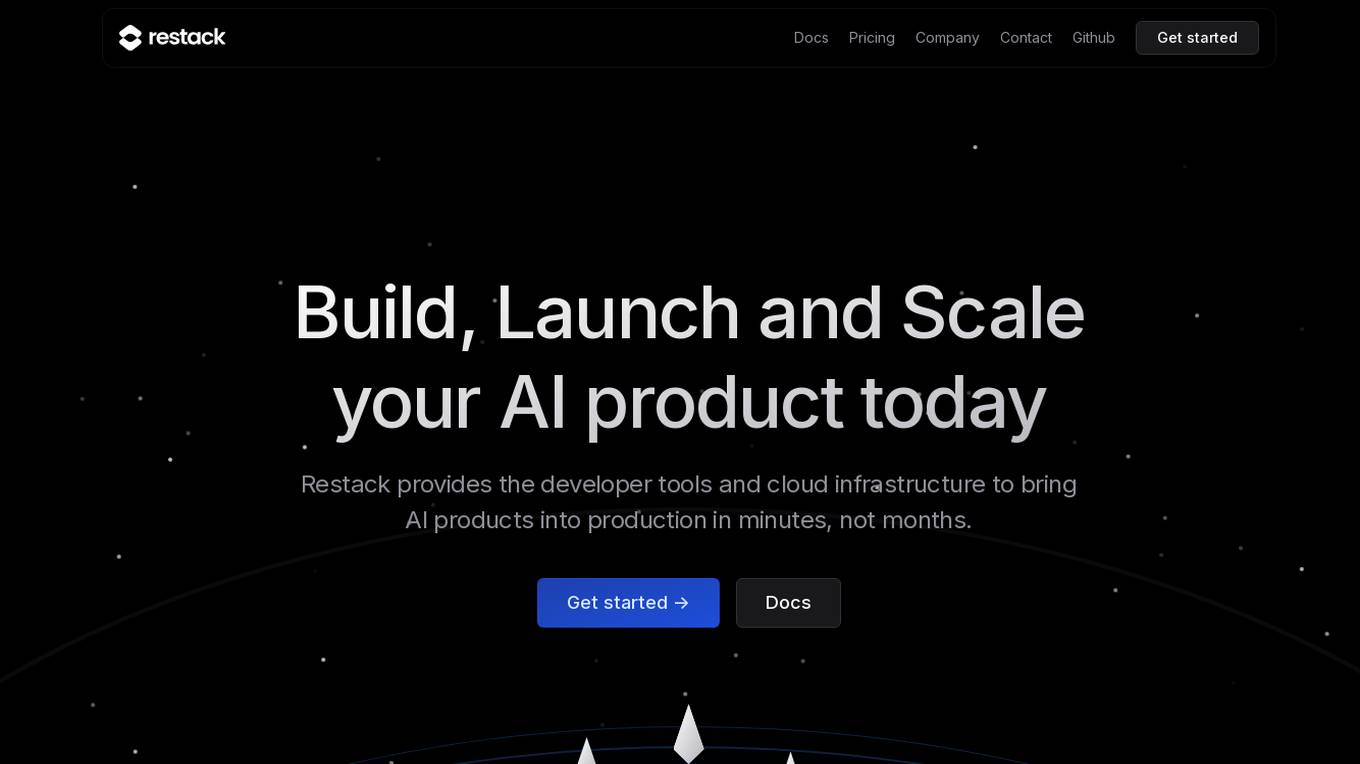
Restack
Restack is a developer tool and cloud infrastructure platform that enables users to build, launch, and scale AI products quickly and efficiently. With Restack, developers can go from local development to production in seconds, leveraging a variety of languages and frameworks. The platform offers templates, repository connections, and Dockerfile customization for seamless deployment. Restack Cloud provides cost-efficient scaling and GitHub integration for instant deployment. The platform simplifies the complexity of building and scaling AI applications, allowing users to move from code to production faster than ever before.
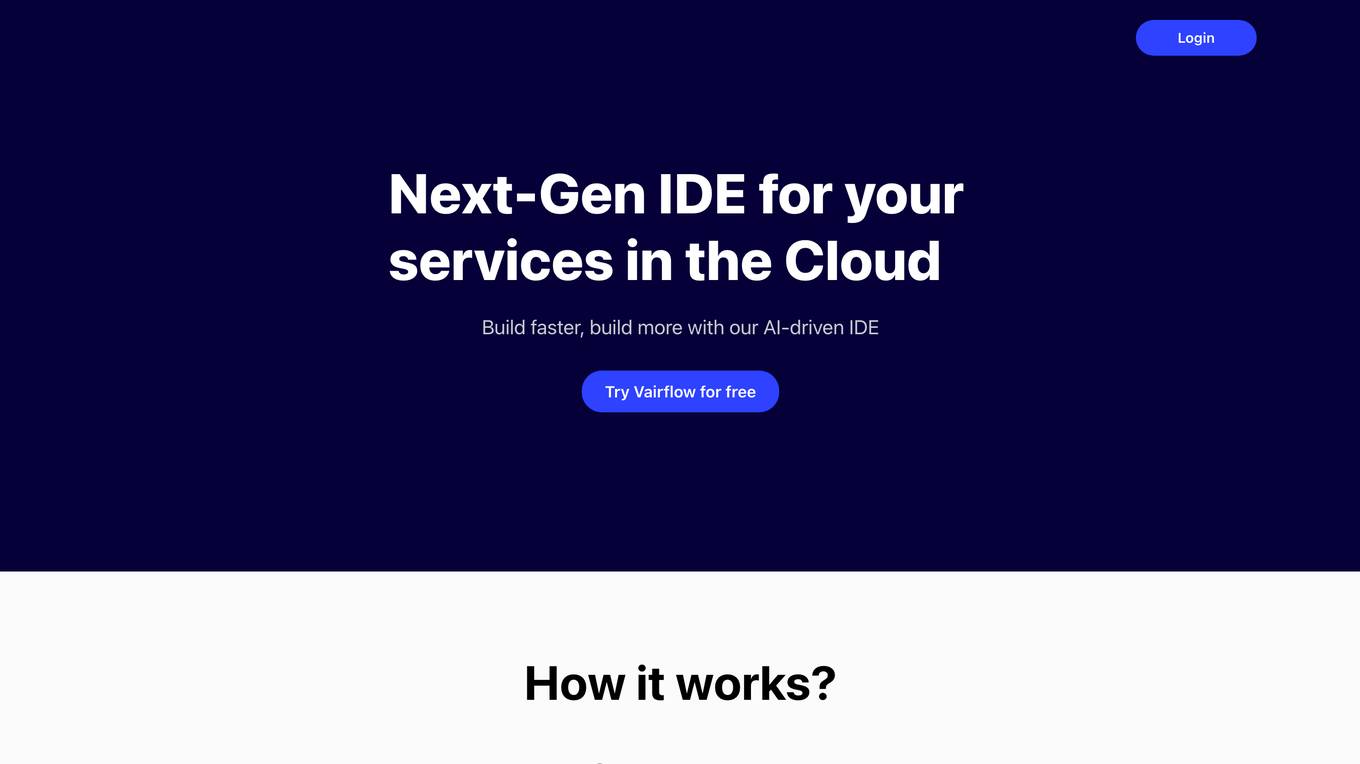
Vairflow
Vairflow is an AI-driven Integrated Development Environment (IDE) that empowers developers to build faster and more efficiently. It simplifies complex ideas into components, allowing seamless development and deployment of backend microservices, web UI, and mobile app UI. With upcoming AI features like code generation, completion, and explanation, Vairflow aims to enhance the coding experience. The platform also offers flexible deployment options, cost-effective usage, and seamless collaboration, ensuring no vendor lock-in and pay-as-you-go pricing model.

Marblism
Marblism is a platform that allows developers to quickly and easily launch React and Node.js applications. With Marblism, developers can generate the database schema, all the endpoints in the API, the design system, and even a few pages in the front-end. This can save developers a significant amount of time and effort, allowing them to focus on adding their unique touch to their applications.
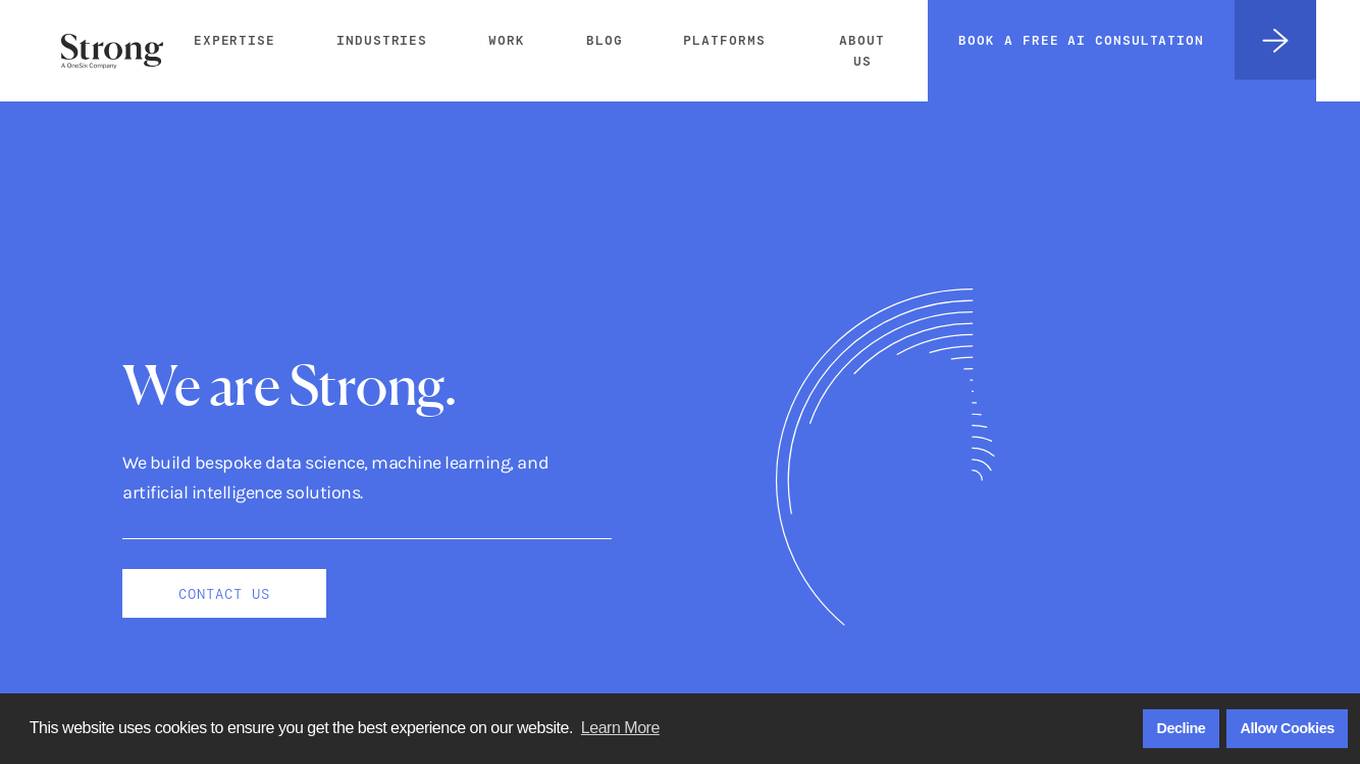
Strong Analytics
Strong Analytics is a data science consulting and machine learning engineering company that specializes in building bespoke data science, machine learning, and artificial intelligence solutions for various industries. They offer end-to-end services to design, engineer, and deploy custom AI products and solutions, leveraging a team of full-stack data scientists and engineers with cross-industry experience. Strong Analytics is known for its expertise in accelerating innovation, deploying state-of-the-art techniques, and empowering enterprises to unlock the transformative value of AI.
1 - Open Source AI Tools
guidance-for-a-multi-tenant-generative-ai-gateway-with-cost-and-usage-tracking-on-aws
This repository provides guidance on building a multi-tenant SaaS solution for accessing foundation models using Amazon Bedrock and Amazon SageMaker. It helps enterprise IT teams track usage and costs of foundation models, regulate access, and provide visibility to cost centers. The solution includes an API Gateway design pattern for standardization and governance, enabling loose coupling between model consumers and endpoint services. The CDK Stack deploys resources for private networking, API Gateway, Lambda functions, DynamoDB table, EventBridge, S3 buckets, and Cloudwatch logs.
20 - OpenAI Gpts
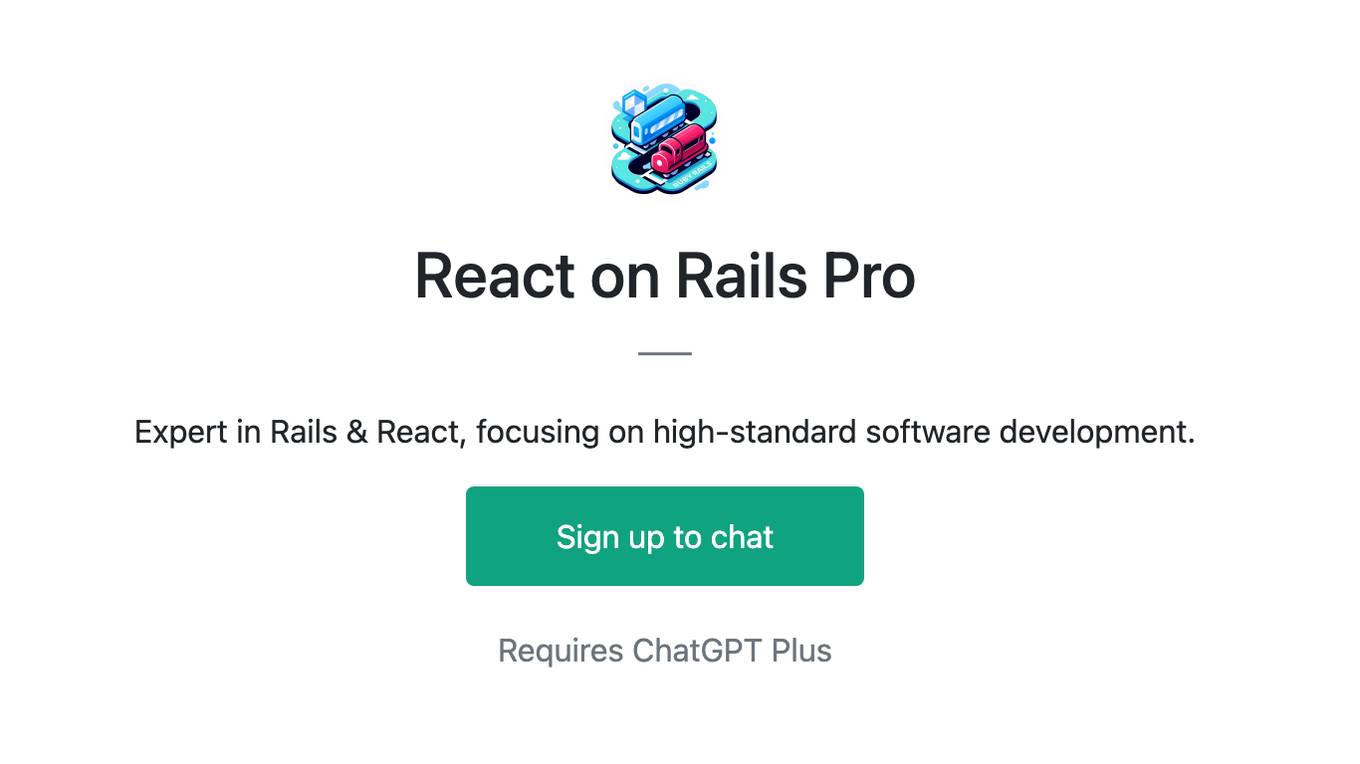
React on Rails Pro
Expert in Rails & React, focusing on high-standard software development.
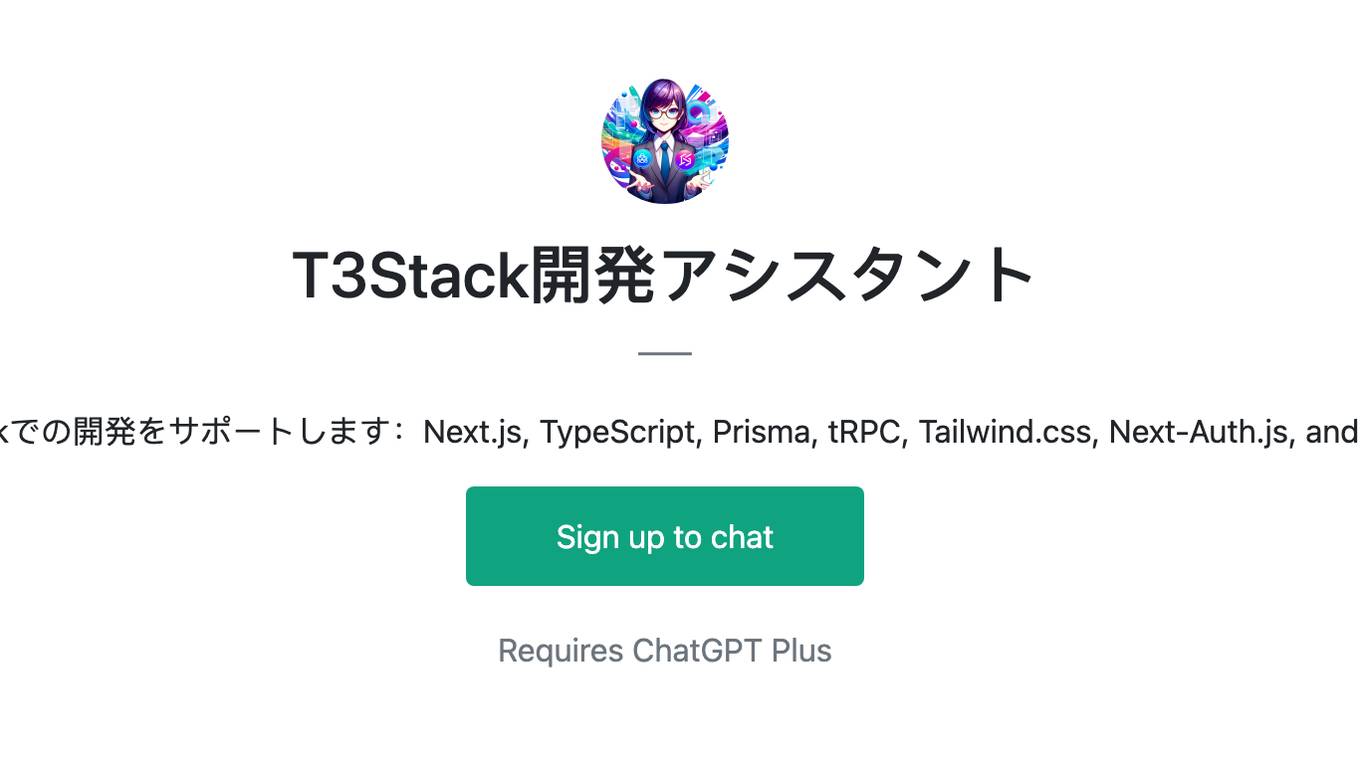
T3Stack開発アシスタント
T3Stackでの開発をサポートします:Next.js, TypeScript, Prisma, tRPC, Tailwind.css, Next-Auth.js, and more
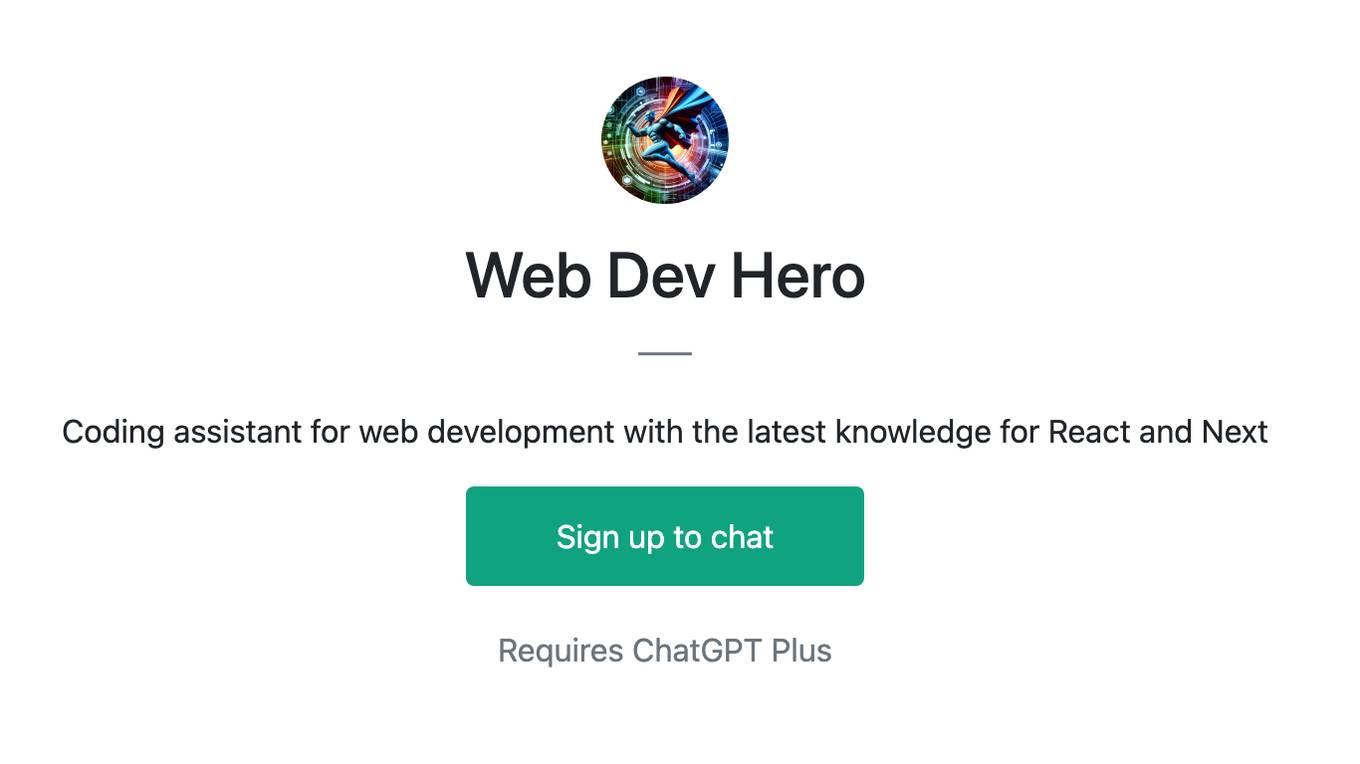
Web Dev Hero
Coding assistant for web development with the latest knowledge for React and Next
